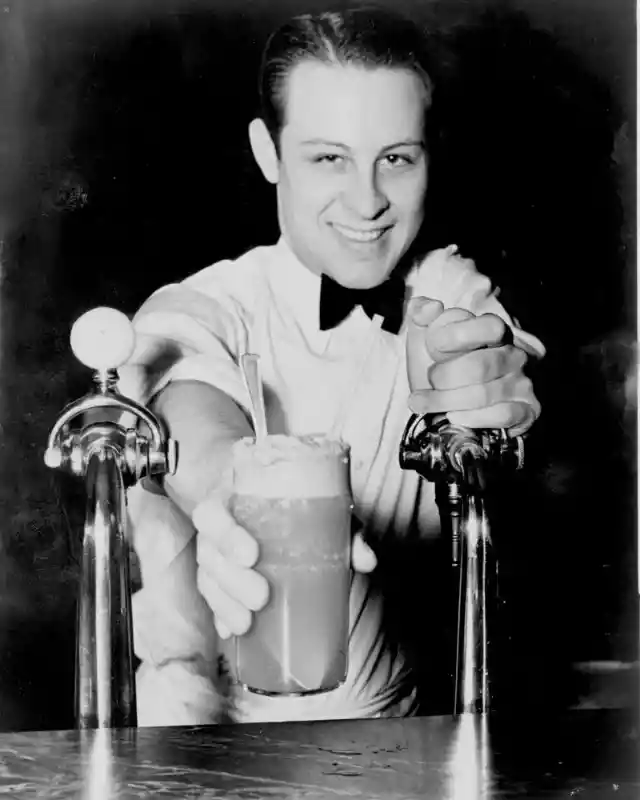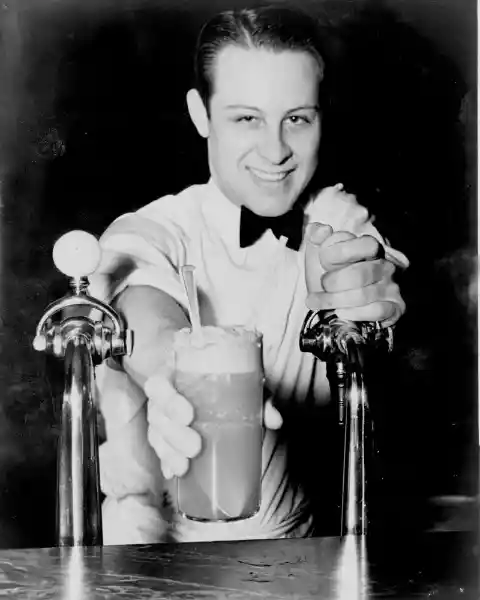With changing times, several jobs are being replaced by technologies. It is really quite challenging to imagine what people did for a living in the past. Grandparents often have stories of their times and some of them could be related to the jobs of the past. You must have heard from them about the strangest, odd jobs that were formerly widespread before technology took over.
We do not often consider the types of employment that were common in the past. Here is a list of old-fashioned jobs, nevertheless, if any of them pique your curiosity. While some of these are typical jobs, others may seem odd to you.
Ratteners
Ratteners were those who used to catch rats in traps. It remains the most peculiar job on the list. It is challenging to think that some people truly had this profession in the past. In addition to sanitation concerns, Ratterners' work also served as a form of amusement.
Then, in order to provide entertainment, rats were imprisoned in the pubs in front of the people. Just as we love music and dance today, folks in bars used to enjoy catching the rats. In Victorian times, dogs would frequently eat rats when this happened. When the deadly black plague started to spread, the occupation later gained importance. The ability to catch rats turned out to be useful in controlling the disease's spread.
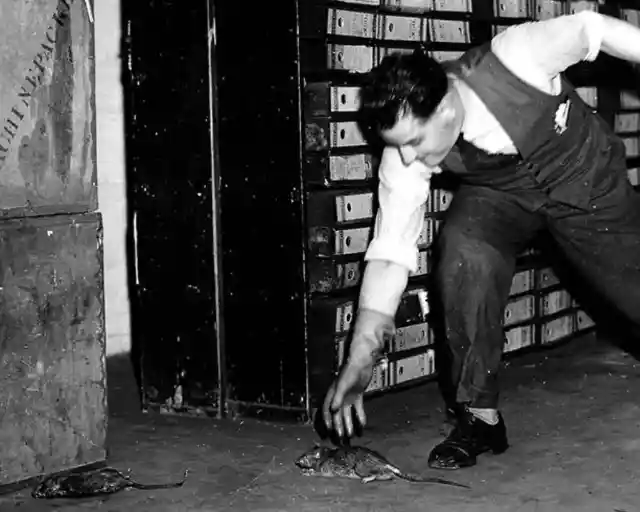
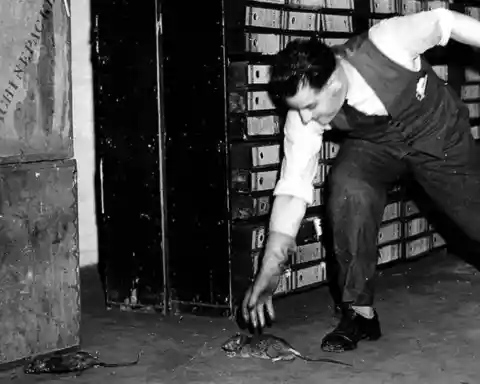
Ice-Men
As the name suggests, the Ice-men used to deal with ice. Their primary responsibility was to cut ice, but it's not as simple as it might seem. If you have seen the well-known Disney film named Frozen, you probably have a fair sense of what this profession entails. Professional ice-cutters had a high scope in the 1800s or thereabouts.
Besides cutting ice, Icemen were in charge of assisting people in storing their food during severe weather. They used to do hand-carving of large blocks of ice daily to deliver the items to the respective households. The job was difficult and Icemen used to charge a high amount of money for their service. However, as soon as refrigerators were invented, the taxing job was rendered redundant.
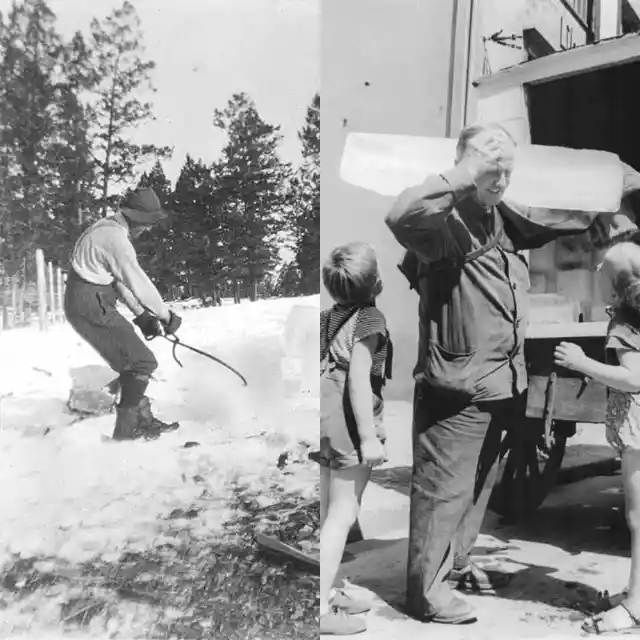
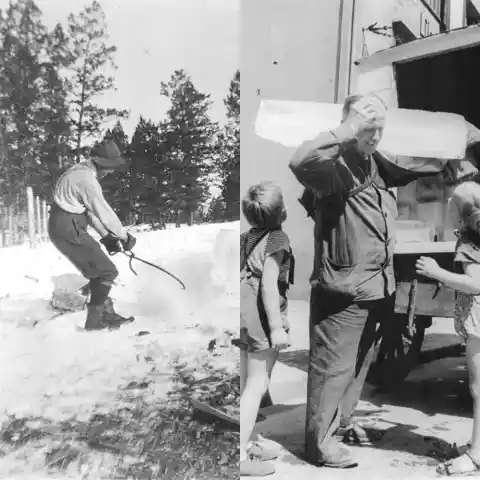
Gong Farmers
Individuals in the past ages didn't really know how to treat human waste. Nonetheless, there was a need to remove the waste. It makes sense that there were several jobs for the work. The work of a gong farmer was similar to treating human waste.
Gong farmers were entrusted with digging out human waste from privies and cesspits during the middle of the 15th and 17th centuries. Undoubtedly, it must’ve been a terrible job. Nonetheless, someone should be responsible for the job. We appreciate that people were at least aware of the need to remove human waste and the project remained within that time frame.
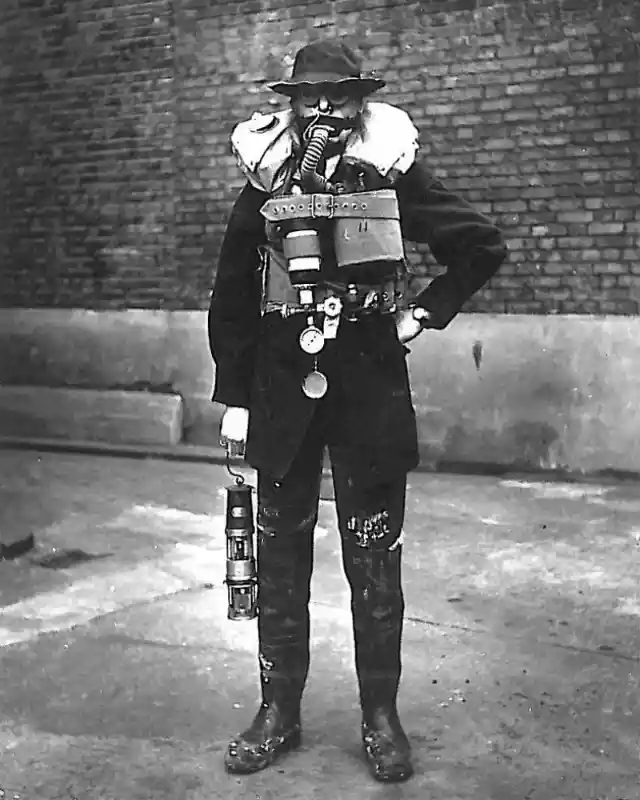
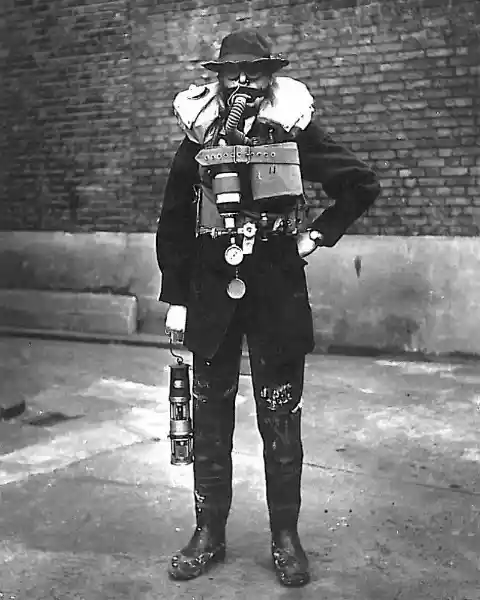
Milkman
Doorstep delivery is not a new thing. It used to exist in the past times as well. The sight of a milkman was one of the most frequent scenes that used to occur in the early mornings in the 1950s and 1960s. High-spirited milkmen used to carry fresh dairy to houses' front doors in jugs and other jars and bottles while scouting the suburbs primarily.
Besides the doorstep delivery of milk by the milkman, if you were lucky, you might occasionally discover other cooking and household necessities delivered to your doorsteps. The development of refrigerators, however, signaled the end of milkmen and their tenacious line of work as people started buying milk for the week once at the time of purchasing groceries from the supermarket.
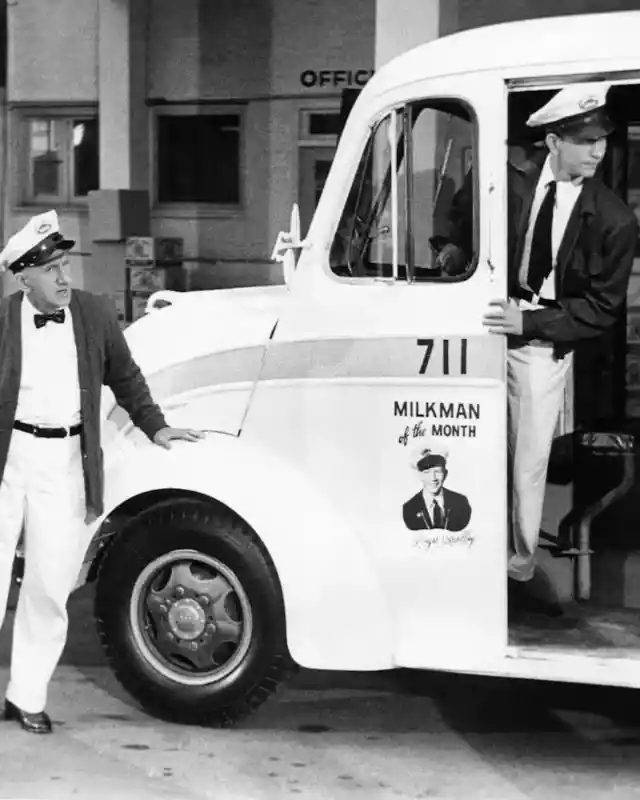
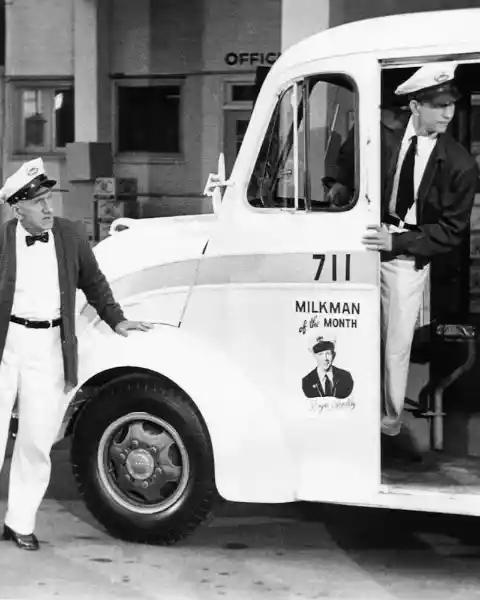
Human Pinsetters
Undoubtedly, one of the most enjoyable things to engage in with friends is bowling. It is a leisure activity that is in existence for a long time. People in the past also participated in this enjoyable pastime with the same passion, with one little exception.
Prior to 1936, to keep the pins in check, alleys would literally employ professional alley pinsetters. The job that is done today with machines used to be done by humans in the past. Although placing pins occasionally may seem like a simple task, it was most certainly not. To reshuffle the pins, these employees had to work nonstop during bowling hours.
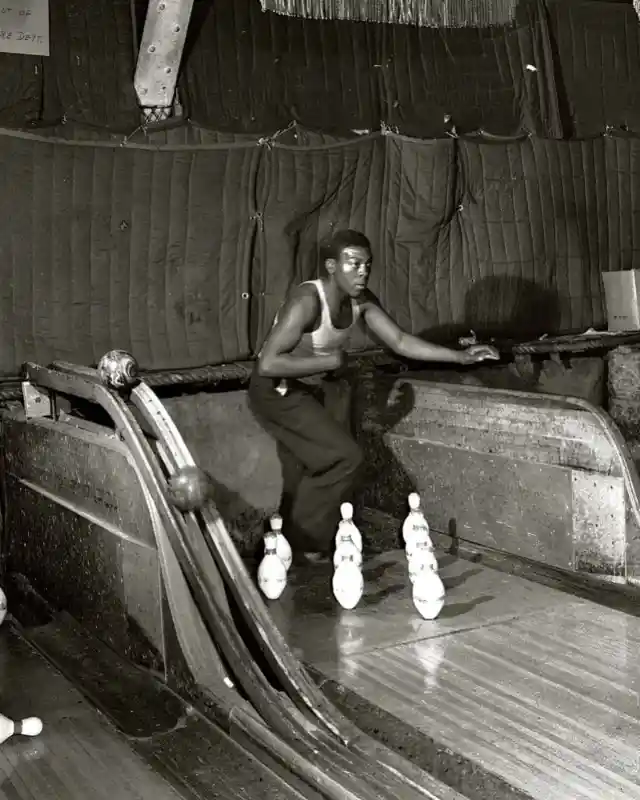
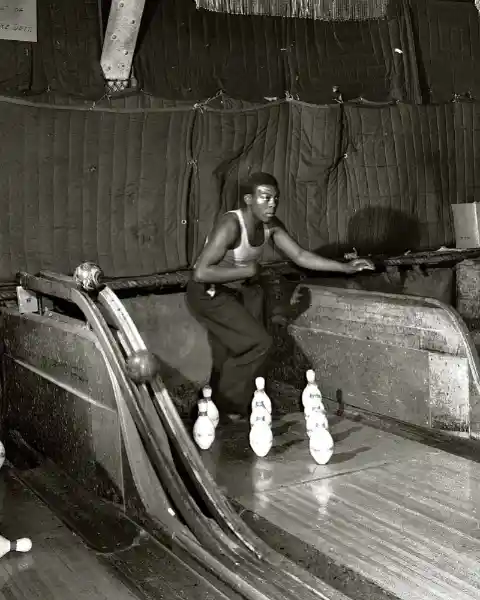
Elevator Operator
If you are familiar with Game of Thrones, then you must’ve seen the ‘Wall Watchers’ going up and down the wall using elevators. For those of us in Generation Z, this might sound strange, but elevator operators existed in the past. In fact, hotels and other significant buildings with a lot of daily visitors used to hire personnel particularly to run the elevators in the 1950s.
The previous elevators' complexity, which guests evidently didn't want to use, is the main cause of this. But as time passed, automatic elevators appeared, replacing these operators. Today, there is no need for elevator operators. Thus, the profession doesn’t exist anymore.
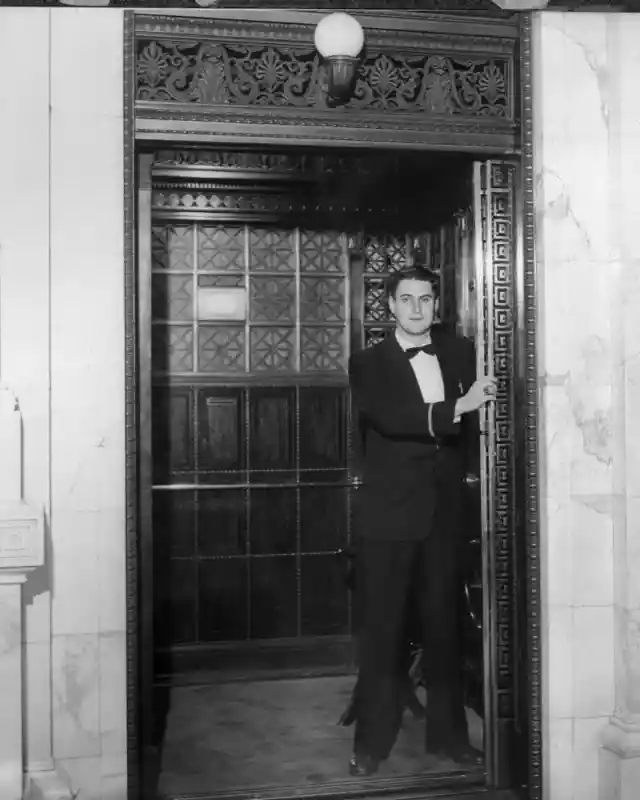
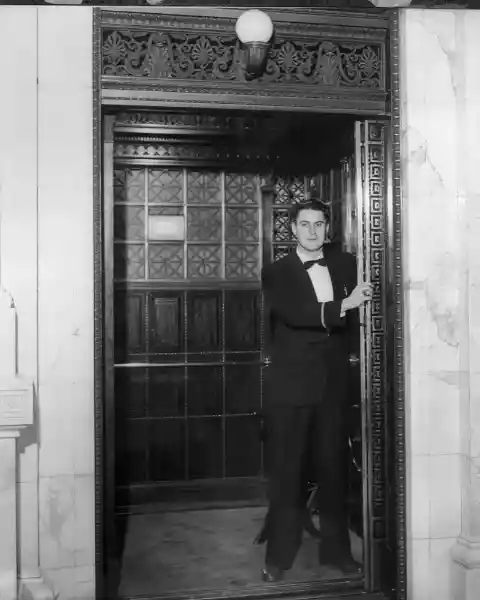
Hackers
A profession by the title of Hacker used to exist in the old times. In this generation, the word "hacker" may conjure up images of someone who is tech-savvy and know a lot about Coding, but in older times, it may have conjured up quite different images.
People who were skilled at "hacking down" trees were known as "hackers" around the 1960s. Nonetheless, technology eventually put an end to this strange job as employers began turning to machines to keep up with the rapidly expanding economy. Now, there are people who operate the machines to cut down the trees but they are no longer called a hacker.
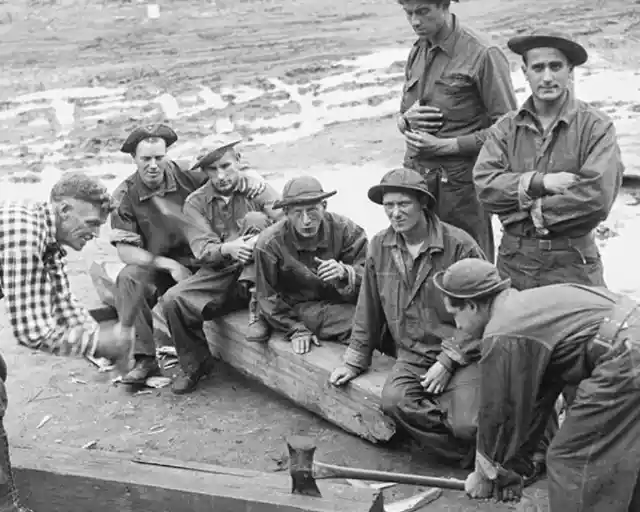
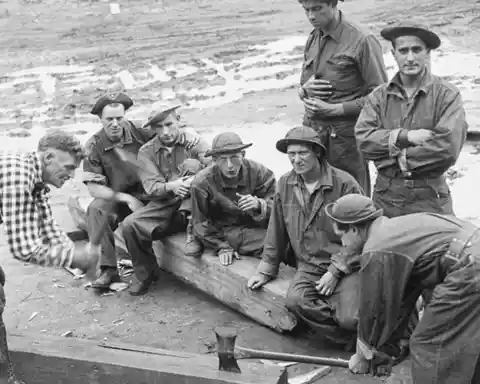
Linotype Operators
Linotype Operators used to type each and every article for the newspaper in the old times. Making and disseminating news has never been more straightforward than it is in this century. But in the 1960s, this was unquestionably not the case. Then, people relied on "Linotype Operators," who used a metal typesetter to press down articles on newspapers one at a time.
Since there was no other way to get news at the time, people really joyfully accepted the patience and time demands of this employment. But soon after, the advent of phototypesetting caused this profession to lose ground gradually.
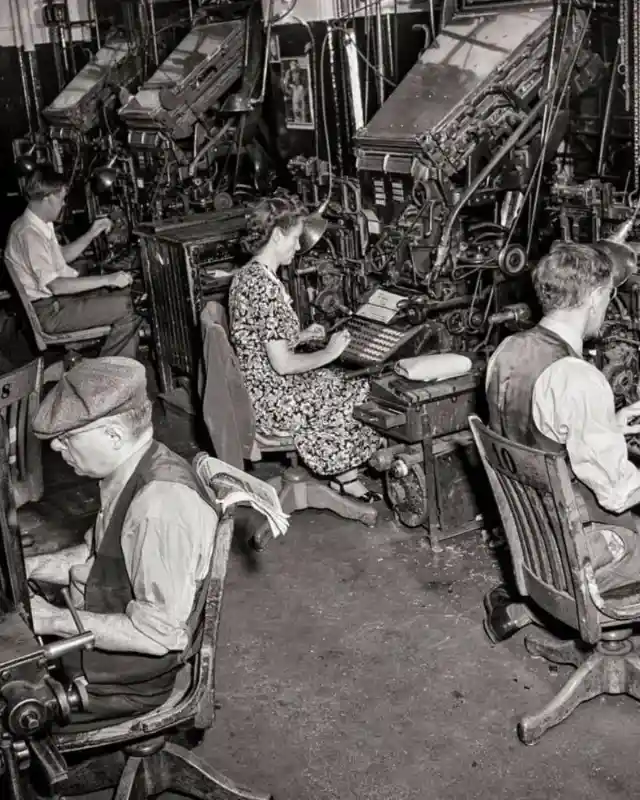
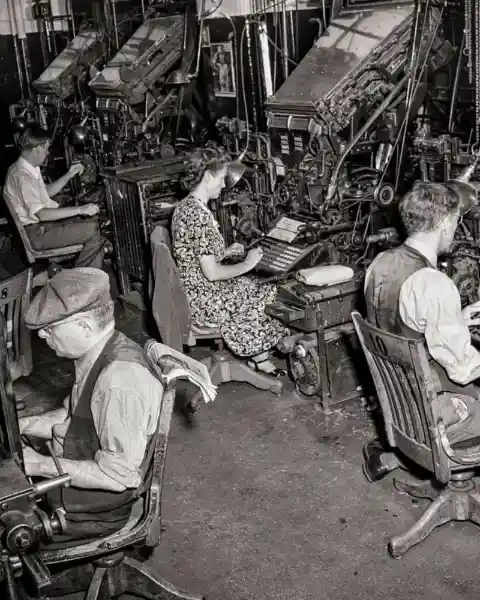
Railroad Keepers
As the name specifies, the railroad keepers were responsible for maintaining the railroads. The job required workers to manually maintain and care for the railroad rails that carried trains. People in this occupation were frequently referred to as "Gandy Dancers" in the 1960s and 1970s, but they weren't dancers at all.
The labor of the railroad keepers was in high demand and required long shifts of nonstop, physically demanding work. As big machines were deployed in their place, the demand for employment quickly appeared to decline. However, the profession, like others, didn’t get completely extinct. Gandy Dancers are still employed, albeit in a small number, by numerous railroads all around the world.
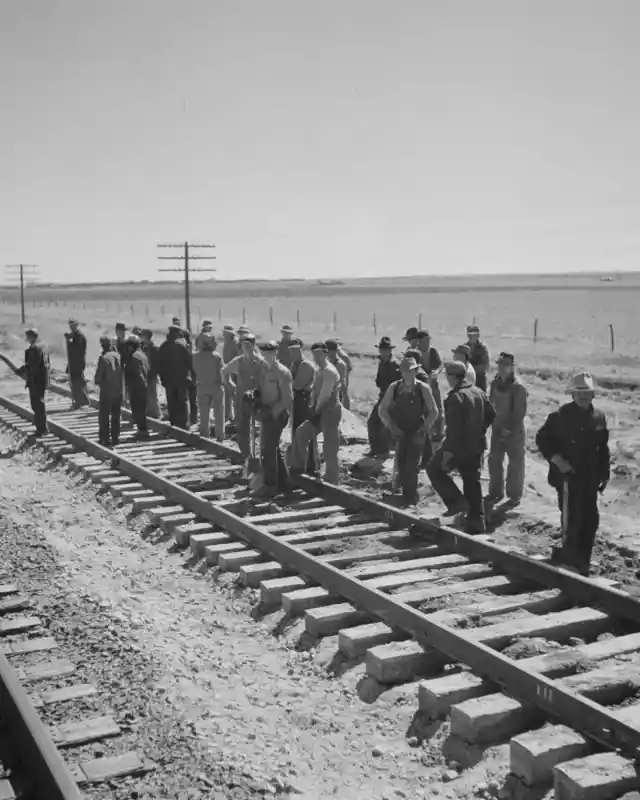
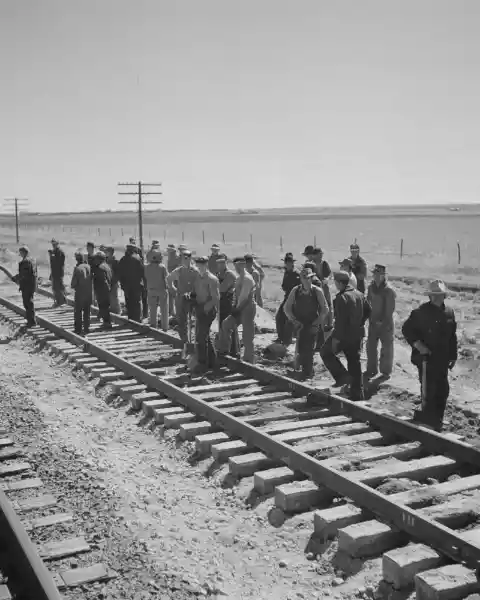
Chimney Sweepers
The profession of chimney sweepers is one of the professions of the past time that hasn’t got completely extinct with time. Chimney sweepers were highly popular in the past, however, they are still common in some regions of the world. At least more than a century ago, during and after the Industrial Revolution, the profession began to grow.
To maintain and clean the chimneys of the wealthy residents in the community, both the young and the old joined forces in this profession. However, after the introduction of electrical stoves and other gas appliances, the need for chimneys declined. With the decline in the use of chimneys, the occupation of chimney sweepers also began to dwindle.
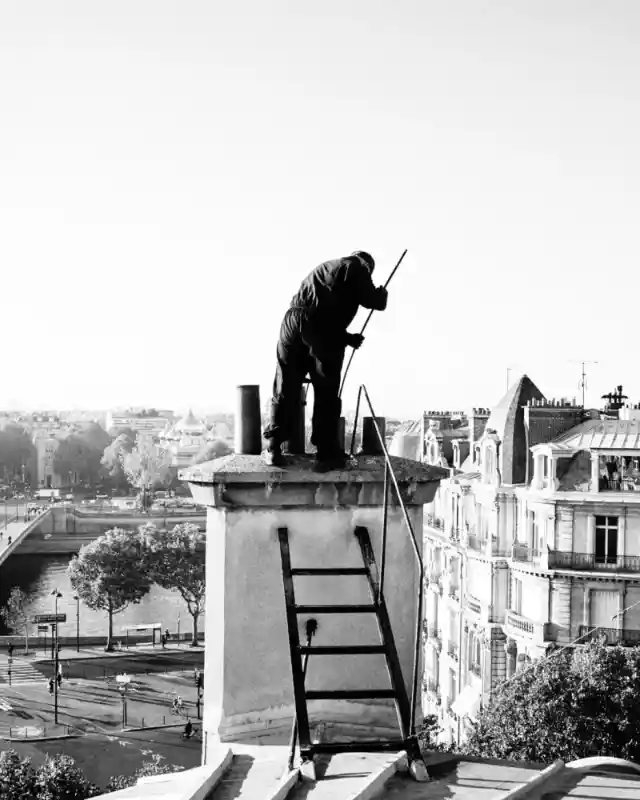
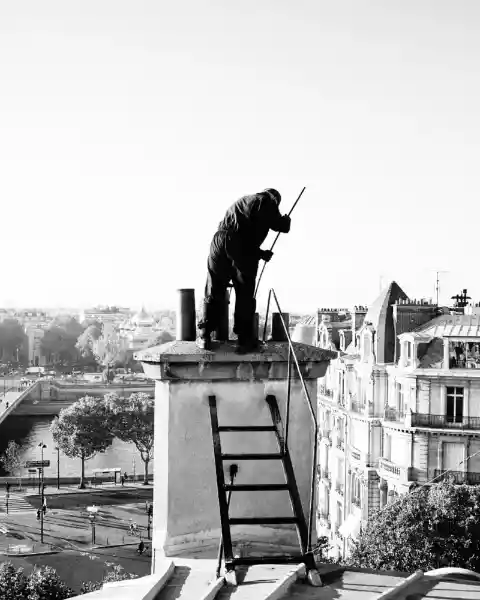
Human Calculators
In all honesty, you could think that the weird employment of human calculators from the past is the strangest one. Women in particular used to be employed as "computers" in the 17th century to manually calculate both little and enormous numbers and figures.
The profession of the human calculator was a tiring and non-stop job. The chosen women were required to manually calculate each number throughout the day with just brief pauses. Fortunately, mechanical and electronic calculators were soon provided by technology, making calculations easy and fast along with allowing the women to rest their hands finally.
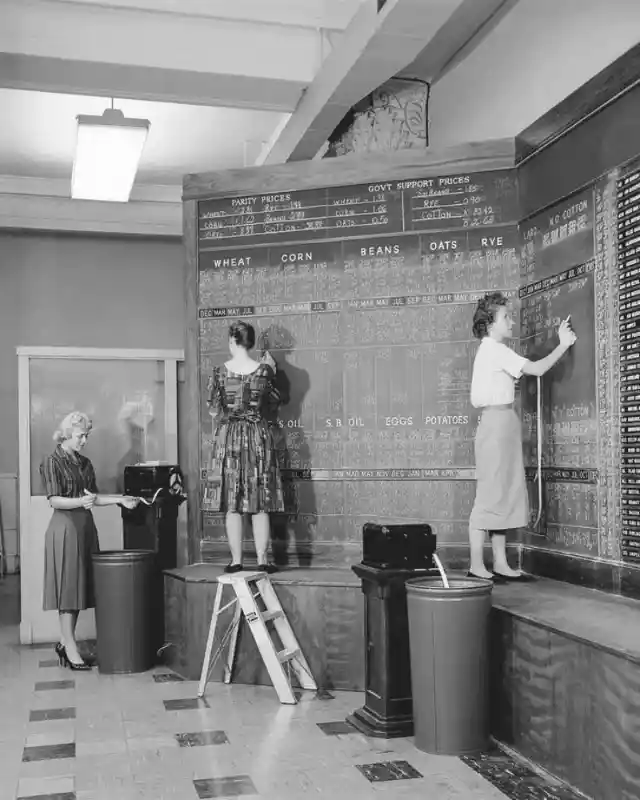
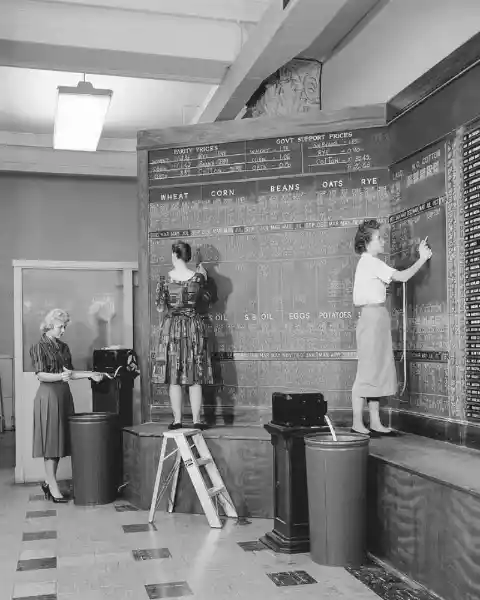
Billy Boys
When humans started drinking tea across the world, the need for manufacturing tea leaves increased. Tea drinkers in the past relied heavily on men known as "Billy Boys" to manufacture their hot beverage from scratch as well as to bring it to them. Billy Boys were often young males who performed primarily tea-making tasks as part of an apprenticeship in the 1960s.
Billy Boys had to memorize and master the art of preparing tea by heart. In reality, if you consider all the little cafes and baristas around you, this employment has become very common in more recent years. Your Starbucks barista can be one of the Billy Boys of the past.
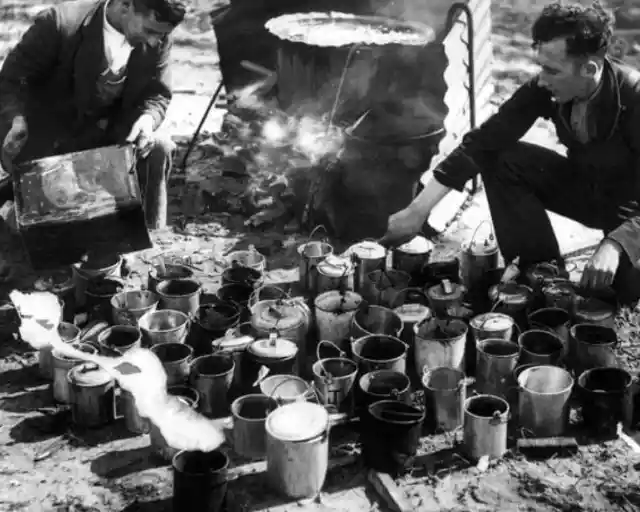
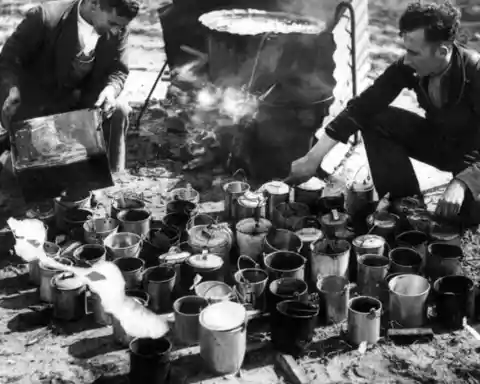
Switchboard Operators
Being a "switchboard operator" was once common odd employment. These individuals used to put in day and night labor to connect and transfer international calls from various cities and nations. The work was as difficult as it sounds. The work needed a great deal of dedication and, of course, the desire to spend the entire day sitting in the same spot and performing the same task over and over again.
Switchboard operators had to ensure that their consumers received accurate information about various issues. The profession was similar to the call centers of today. But eventually, this activity likewise dwindled to nothing. Today, the calls get connected automatically without any need for the switchboard operators.
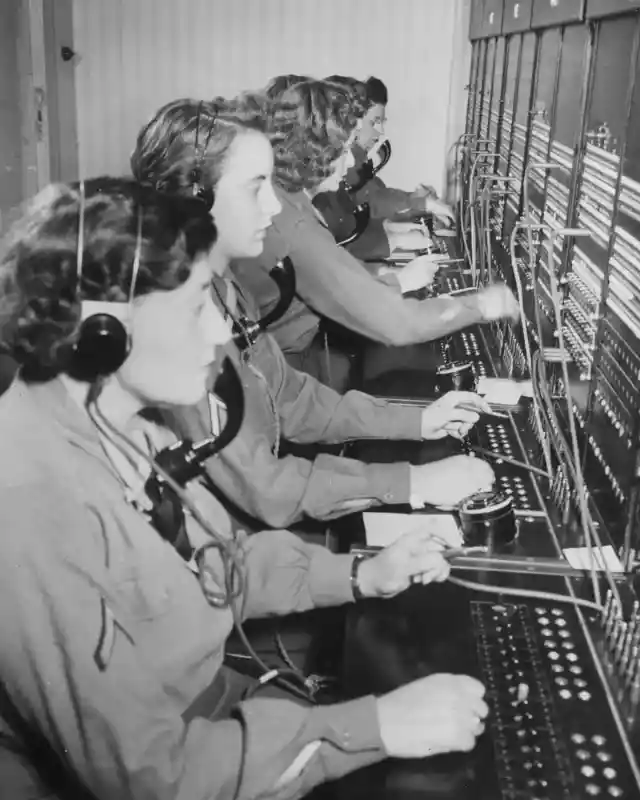
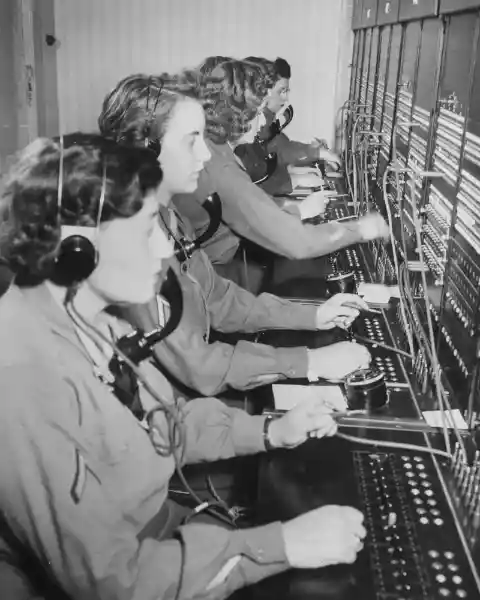
Typists
You must’ve seen someone typing the content of judicial procedures during the hearing session of the courts. This is the job of the typists. The career was very popular in the 1940s, much like professional typists are now. The use of typewriters back then instead of keyboards and computers was the sole distinction. This distinction undoubtedly makes the process of daily writing down hundreds or even millions of words much more challenging and complex.
High demand for labor also equated to good remuneration. Women were dominating the profession of a typist as the majority of the time, they were employed as "typists" back then. The vocation has remained popular in recent years even without the use of mechanical typewriters.
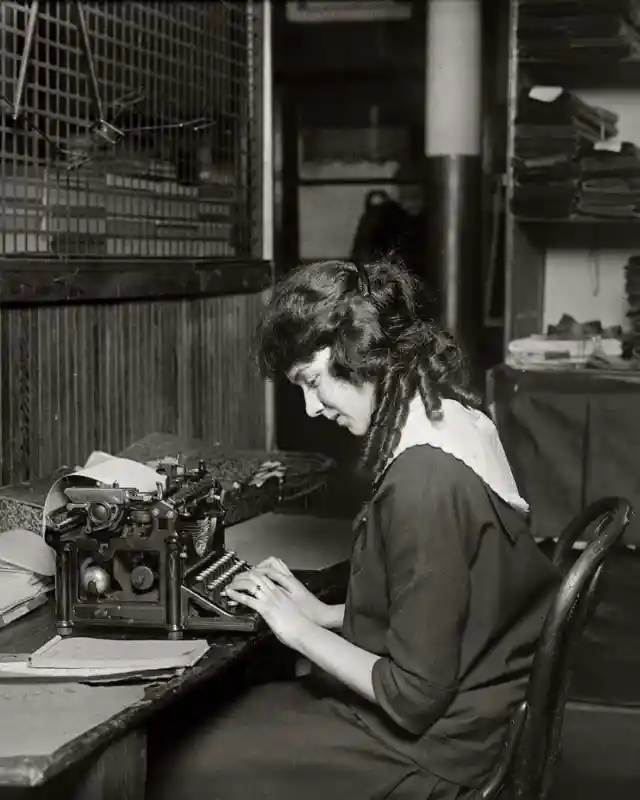
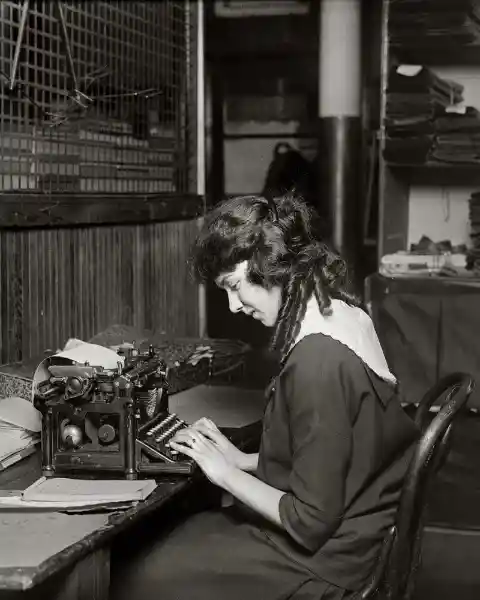
Clock-winder
People in this profession used to wind and maintain clocks so that they could display the right time. They used to work day and night, in shifts, for their job. In a very literal sense, around the clock. In general, winding a clock today is not as difficult as it was in the past, which is why being a "clock-winder" was a highly sought-after career.
The Industrial Revolution created hundreds of jobs for human clock-winders. However, as soon as electrical clock-winders began to appear, they eliminated those positions. Today, there is no need for the clock-winders. Therefore, the job doesn’t exist anymore.
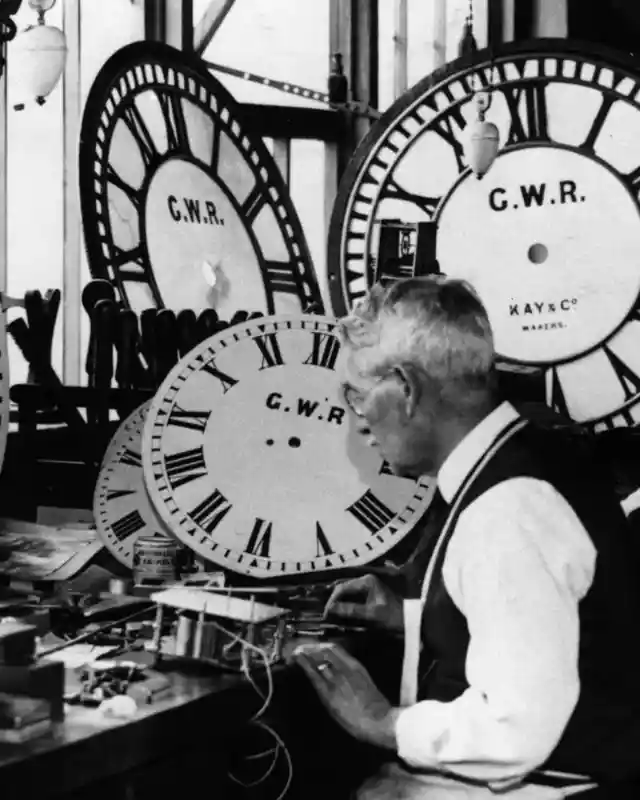
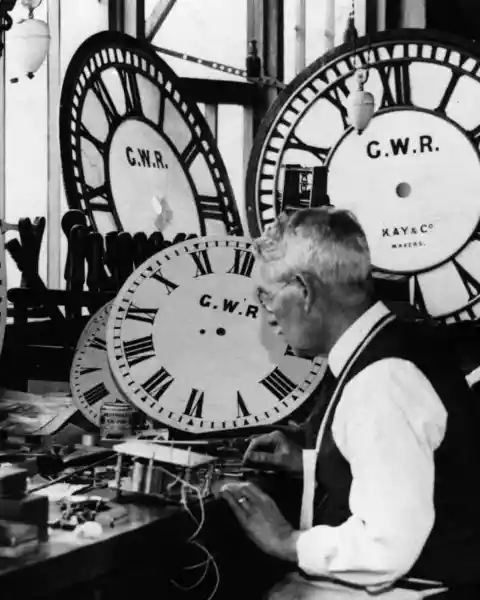
Egglers
Egglers aren't only a relic of the past; they're still around in some measure now. The egglers were responsible for collecting and selling eggs. Many young and old egglers worked at numerous markets selling large quantities of fresh eggs to the general public. They need not have farms to become an Eggler.
Egglers started selling other necessities alongside their usual trade-in eggs to further increase their income. Their economy saw a huge surge and the profession was demanded by many during the time. This is one of the key causes of the occupation's continued existence until now. Today, you could find people selling trays of eggs along with other items of groceries. Some prefer to deal only with eggs.
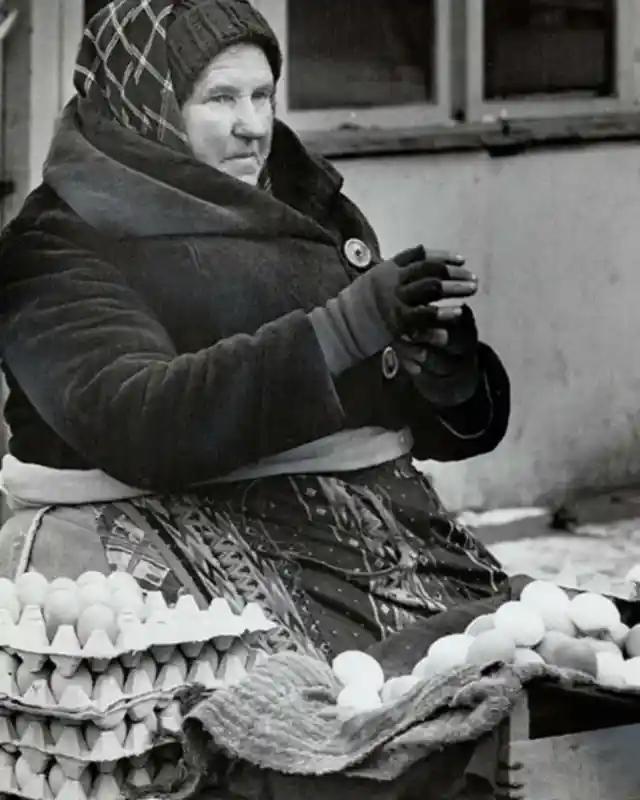
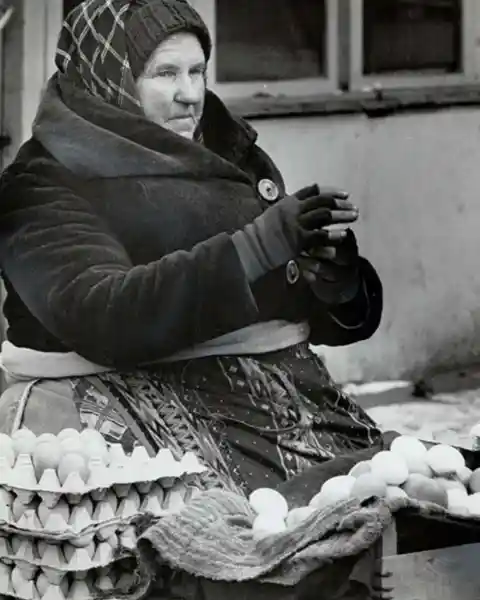
Knocker Upper
Imagine having a human alarm clock and being awakened by someone tapping on your window from below with a long stick. People known as "Knocker Uppers" were employed solely for the purpose of rousing people from slumber. This was indeed one of the weirdest jobs which used to exist in the past.
Office workers relied significantly on these folks to wake them up for work because there were no alarm clocks back then. They would either tap on the windows with a long stick or simply hurl peas at the windows. Only in 1847 did this strange odd vocation predominate; with the adoption of the mechanical alarm clocks.
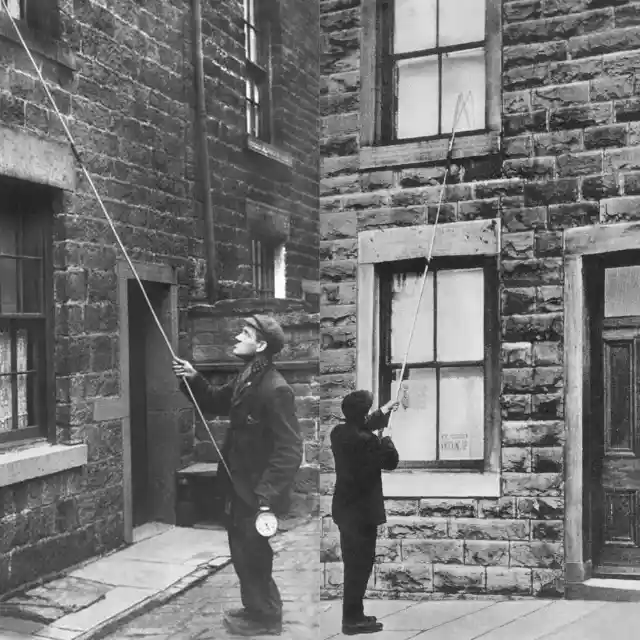
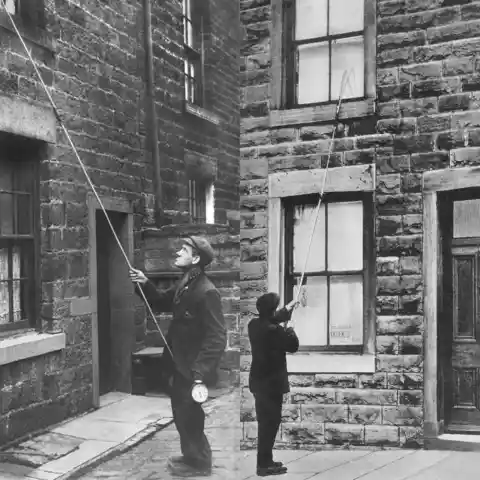
Vivandiere
The name "Vivandiere" first appeared during the American Civil War. It was brought into existence as a tribute to women who fought alongside the soldiers. They had to do some minor yet very necessary work during the war. They tend to bandage the wounded army, follow the troops, prepare meals, transport canteens, and other related things.
Even though the women primarily served as maids, the Vivandiere are nevertheless held in high regard and are remembered with great reverence. They were the ones who were taking care of other needs of the armed forces. The French War Ministry permanently outlawed the work of Vivandières just before World War I.
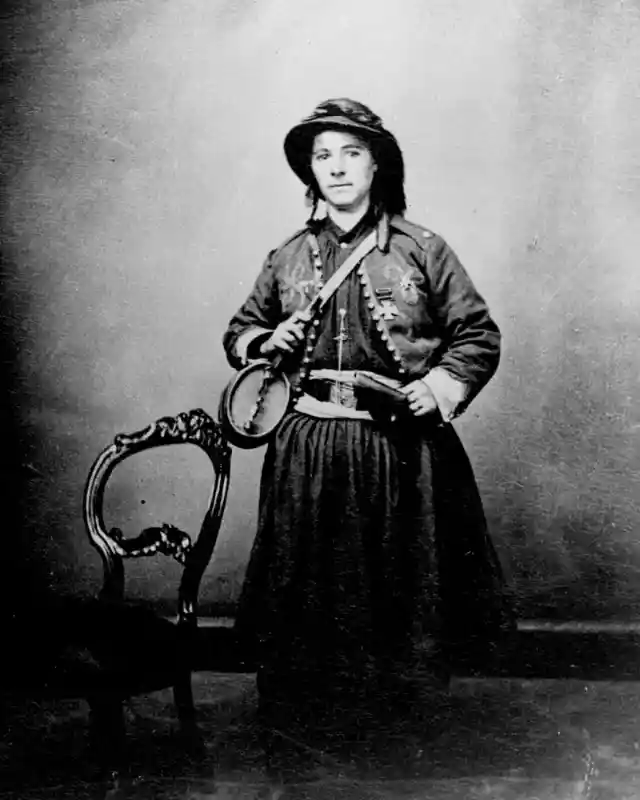
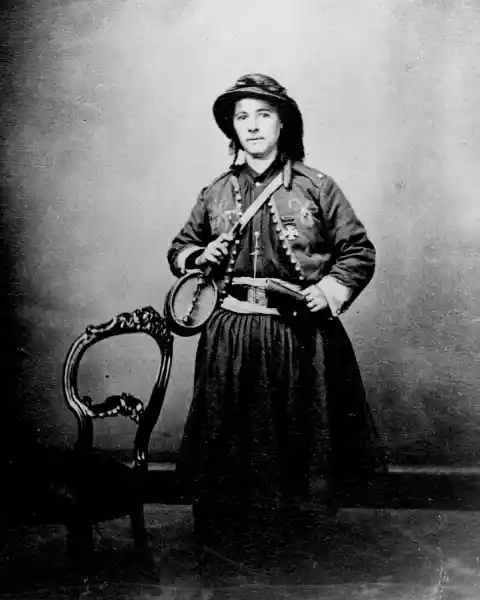
Lectors
People in the late 1920s did not really have much to amuse themselves with while they spent hours on end in their office cubicles. It was not like today when people have certain things to keep themselves entertained while doing official work. Today, workers have the option of scrolling through social media while they are working.
Long, boring hours often lead to less productive hours. Due to the slowdown in productivity, professional "lectors" were hired to read news, books, and stories aloud to the staff as a form of amusement. The fact that it seemed so distracting to us makes it difficult for us to understand how it was amusing.
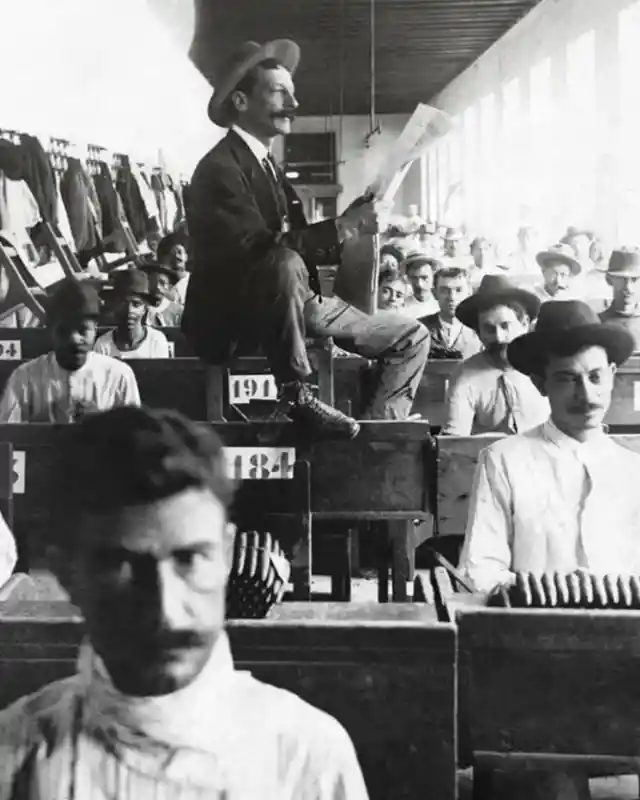
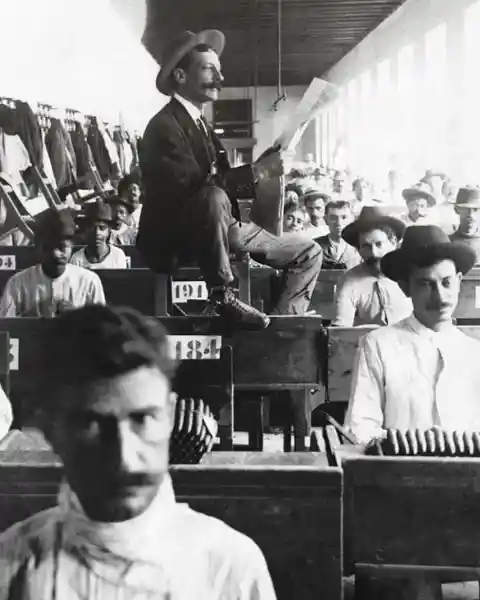
Log Drivers
The globe was not as technologically evolved in the 1970s as it is now. Then, everything needed manual assistance. People were hired to perform manual labor. Today, many workers no longer require any manual assistance to perform duties like riding trunks as technology advances.
However, there was a period when moving these trunks from the forest to the mills for additional construction industry activities needed human work. The workers who used to move these trucks were called the Log Drivers. As a result, as the transportation system developed, the task was completely neglected. Today, we have machine-operated trucks to carry logs from the woods to the mills for manufacturing.
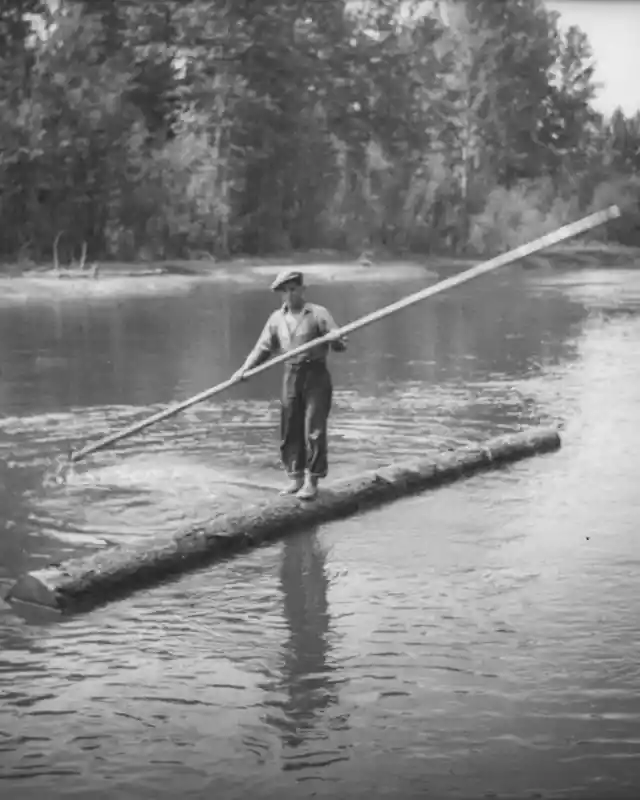
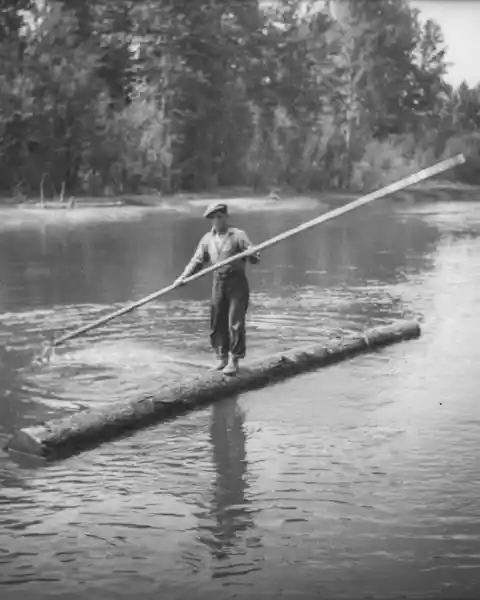
Lungs
It is very difficult to immediately think of a career other than breathing when someone hears the word "lungs." However, there used to be a career associated with the name ‘Lungs.’ Fanning was done with these manual lungs. Alchemist shops were the most popular retailers for the job from the 14th to the 16th century.
Lungs' delicate and exquisite works were in high demand. People were delegated to fan the fire while the alchemical businesses routinely carried out fire operations. The career developed to be a hazardous one for the workers because those who used to work as Lungs, eventually developed blackened lungs. The career is no longer in practice. The advancement of technology is one of the reasons behind it.
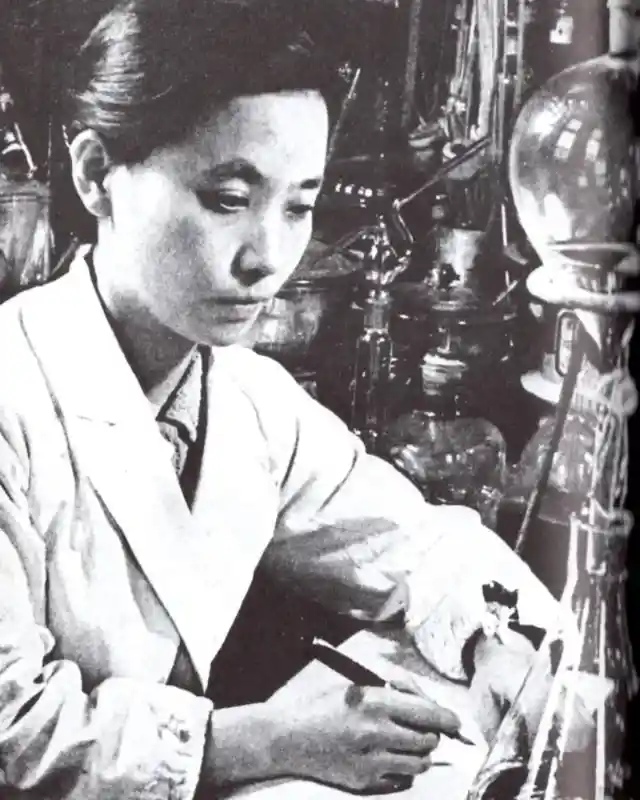
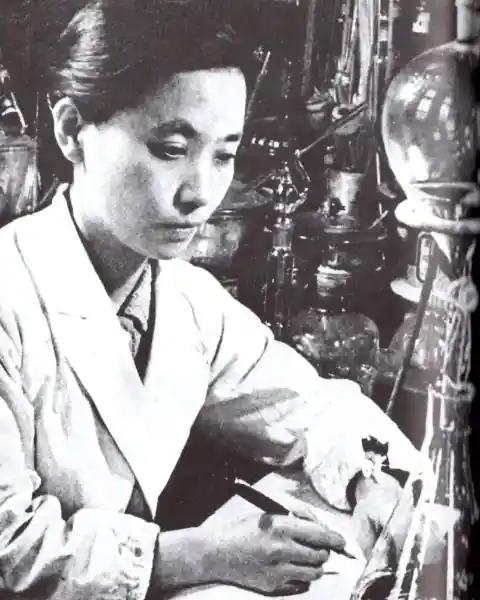
Mudlarks
We have witnessed how inhumane history has been to the underprivileged. The job of mudlarks was also one of the jobs related to the inhumane treatment of the underprivileged. Scavenging through the mud in the river was formerly a respectable line of work. Poverty-stricken people followed the occupation and completed the assignment.
The work of mudlarks mainly included going down in the river and searching for several things. They used to gather priceless things and then sold them to the general population for profit. This was their mode of livelihood. Nonetheless, the job was extremely unhygienic. The job still exists in several parts of the world.
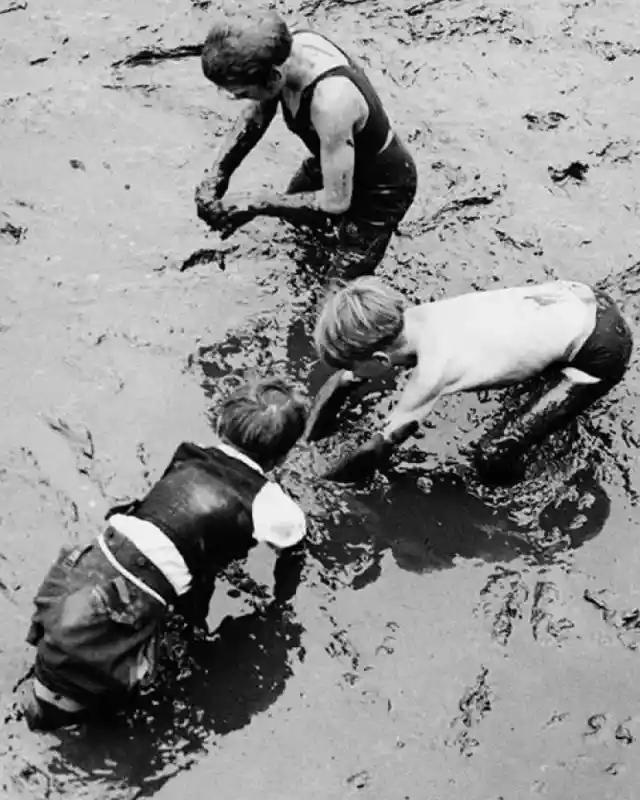
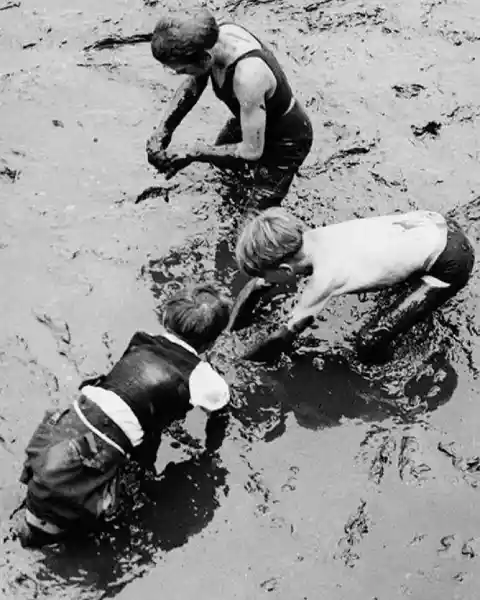
Resurrectionist
The job of resurrectionist might be the creepiest job that used to exist in the past times. You'll be happy you were not born in the 19th century after knowing about this eerie job. Resurrectionists assisted the medical students back then when they needed dead patients to do surgery on. They used to excavate graves and used to deliver the corpses to the pupil in need.
Give your parents a sincere thank you for bringing you into the world at this time. Although there have been disagreements on this, it is safe to infer that this position was eliminated for moral reasons. Respecting the dead is an important thing and digging their graves was surely not the way to go.
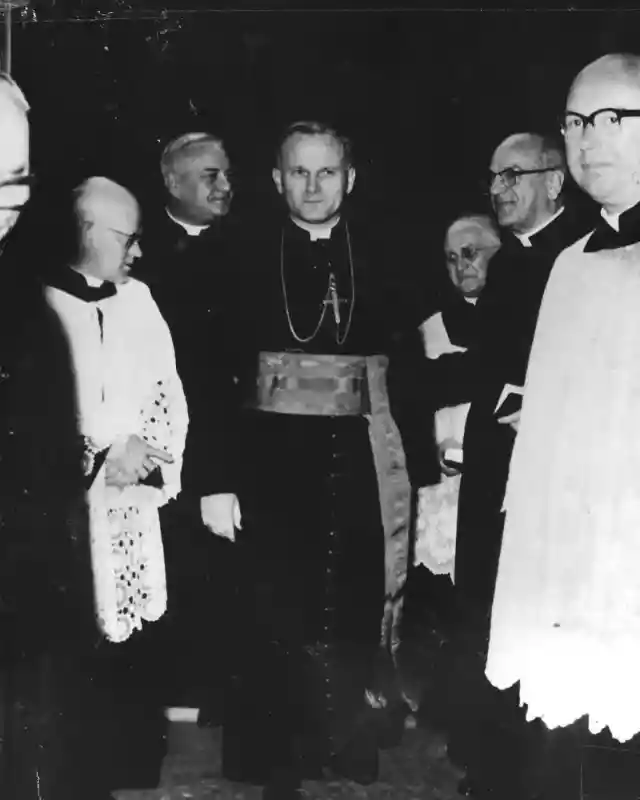
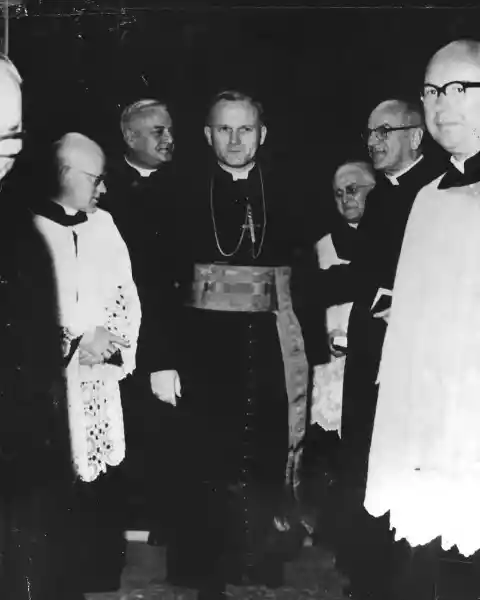
Phrenologist
In the past, phrenology was a form of abstract psychological theory. When the idea was first proposed, phrenologists were regarded as experts of science. It was about attempting to shape some personality traits and mental states using the shape of the skull.
Even though phrenology is currently classified as pseudoscience, phrenologists were far ahead of their time. Later, in 1967, this occupation was outlawed and ceased to exist.
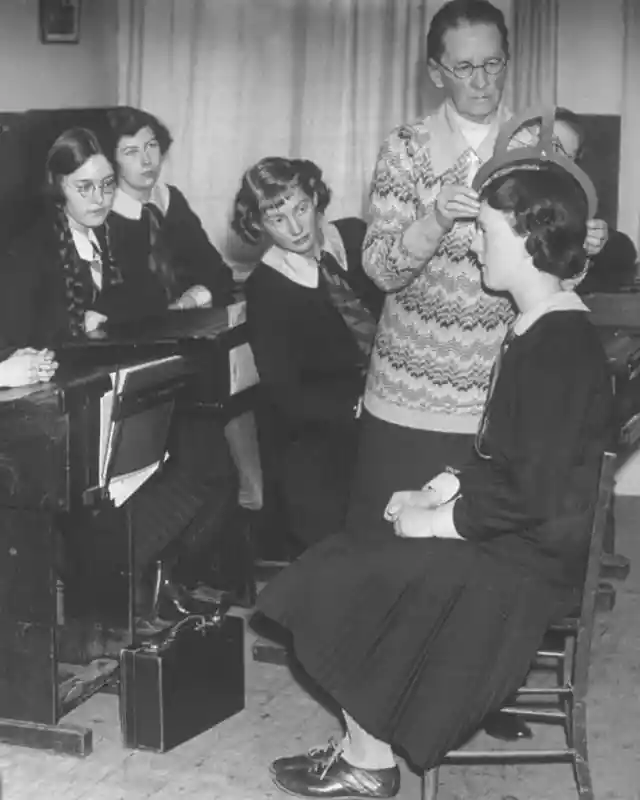
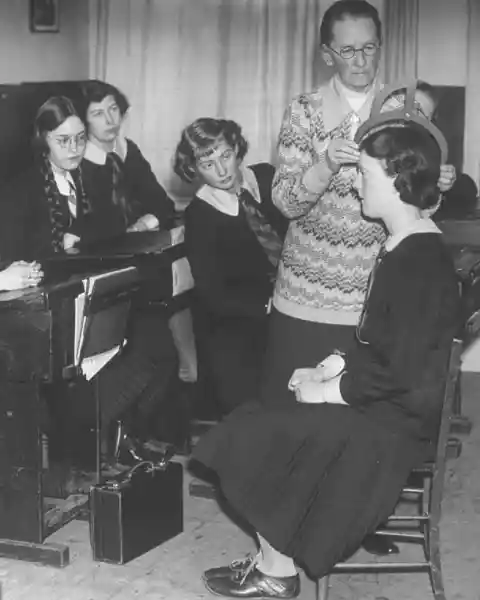
Powder Monkey
Young lads accompanied sailors to battle when sailing was at its height. These young men were dubbed "powder monkeys." Despite the lack of solid proof, some people hold the opinion that the word "monkey" in powder monkey was obtained from the expression "monkeying around.”
The powder monkeys had to transport the gunpowder cargo from one location to another. They essentially assisted with gunpowder loading for the warriors aboard the sailing ship. As their work was associated with dealing with gunpowder, they gained their name as powder monkeys.
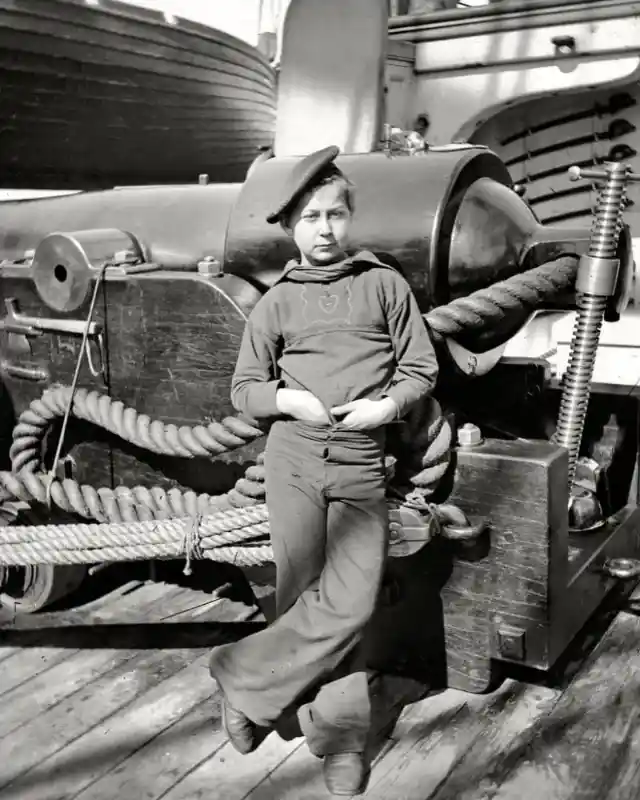
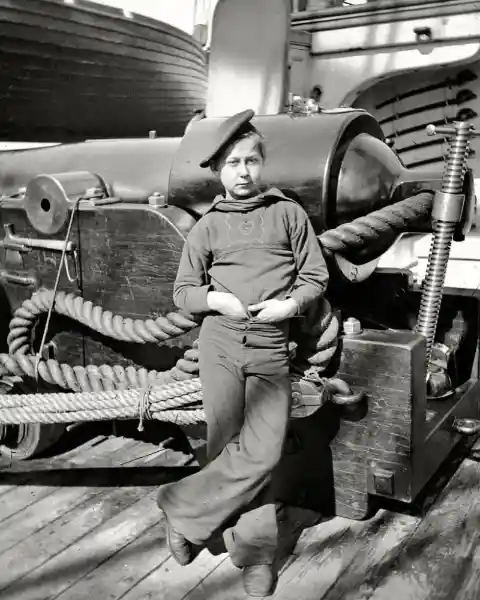
Lamplighters
Prior to the invention of electric street lights, people in the 1800s relied on skilled "Lamplighters," who would actually light the street lamps for them every evening. To reach the lamps up ahead on various streets, people in this occupation used to labor using long sticks.
However, after a hundred or so years or so, when electrical street lighting was first developed, this occupation gradually fell out of favor. However, if you are fortunate enough, you might still be able to locate a small number of these Lamplighters in various regions of the world. The occupation mainly exists in the areas where electricity is still a luxury.
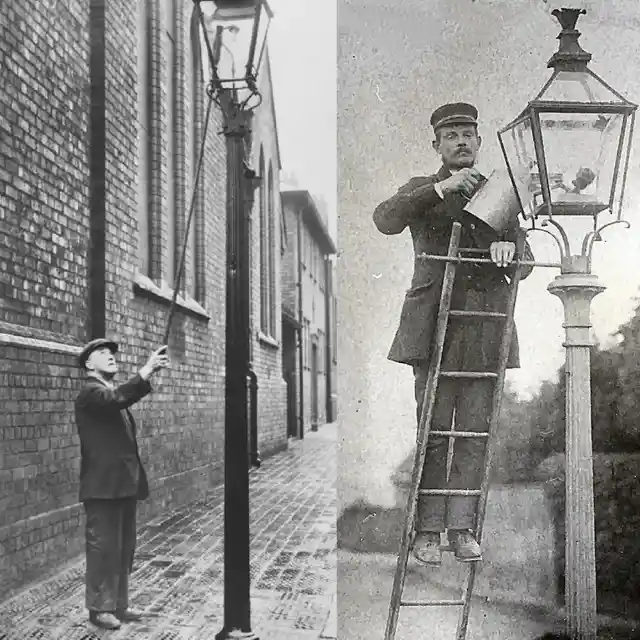
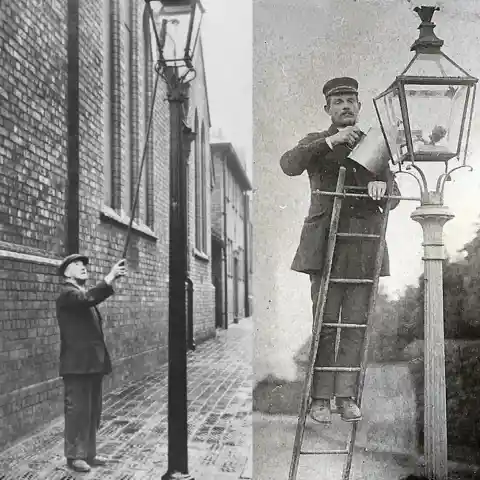
Badger
This term could initially be confusing to you, as it was to us. Was someone being paid to badger people? Was that a real job someone had? Nonetheless, history has a logical answer to each one of our questions. Farmers didn't sell their crops to consumers directly during the market revolution.
There were intermediaries between farmers and consumers. They used to obtain the products from the farmers, then resold them at a premium in the farmers' market. Even if the position may no longer exist, middlemen are still used in many industries. The presence of middlemen is still very common in the field of farming. We don’t normally find farmers directly selling their produce.
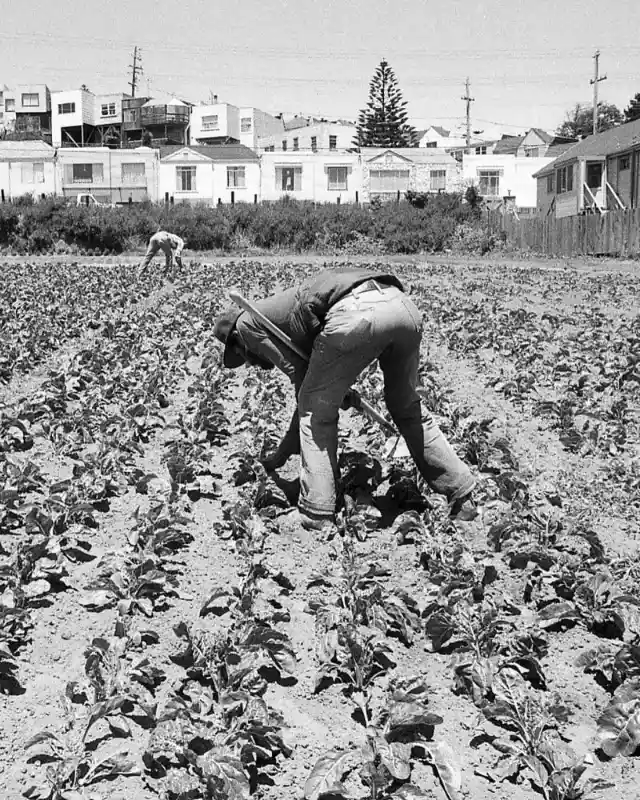
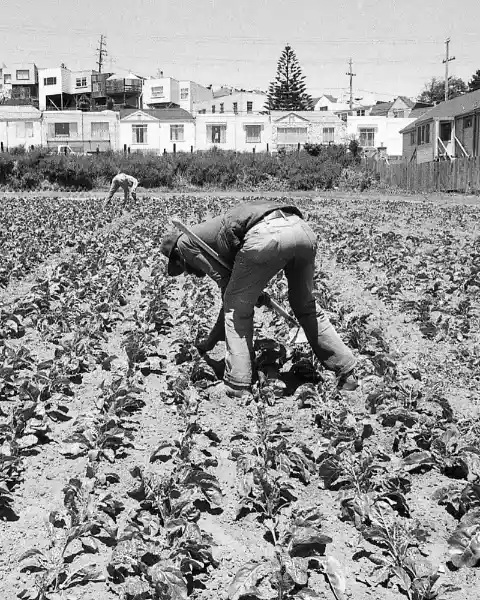
Hobbler
In the 1800s, a "hobbler's" primary responsibility was to tow both small and large ships as well as other kinds of watercraft to the nearest port. Young men in that time and place really desired this employment because it was tough and challenging. The job was the best for the adrenaline rush. The pay was good as well.
Hobblers were in charge of pulling the vehicles to their allotted locations, including balancing the boats and controlling their positions on the water. The same profession has remained popular in recent years despite the invention of machines for boat rides. The profession's name, though, has evolved over time.
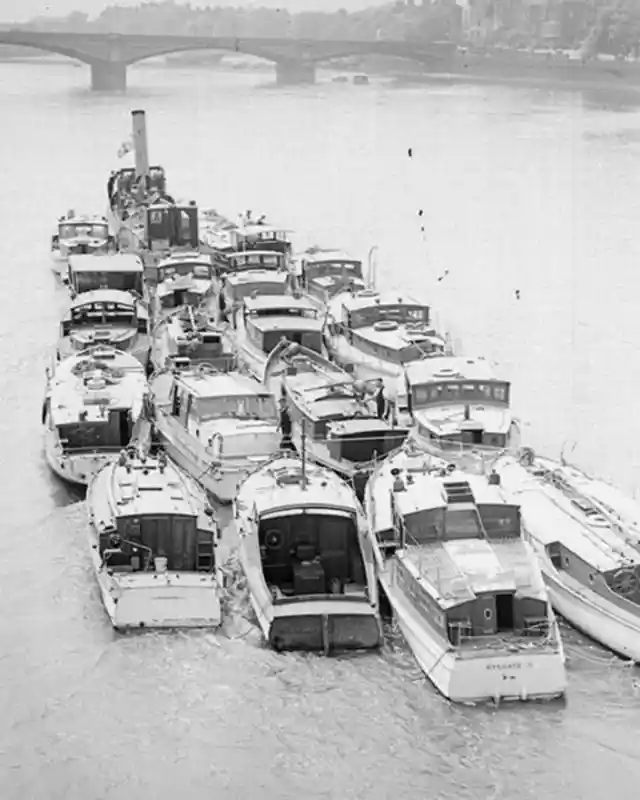
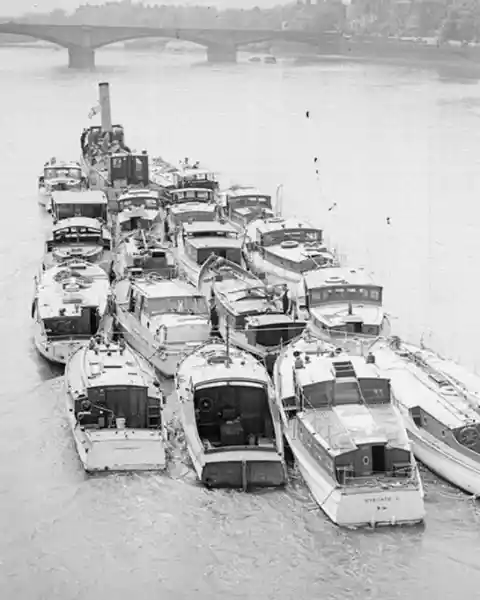
Daguerreotypist
Clicking and developing pictures is no big deal in the 21st century. People, today, can click pictures whenever they wish to. It was not the case in the 1840s and 1850s. The first camera that could be used in public was the daguerreotype, and people who would take the pictures and develop them chemically were known as daguerreotypists.
This method gained popularity quickly after daguerreotypists photographed a number of significant figures, such as Abraham Lincoln and Frederick Douglass. People had a unique enthusiasm to have their photos clicked during the time of the 1840s. As time went on, less expensive methods were gradually used, rendering daguerreotypists' work obsolete.
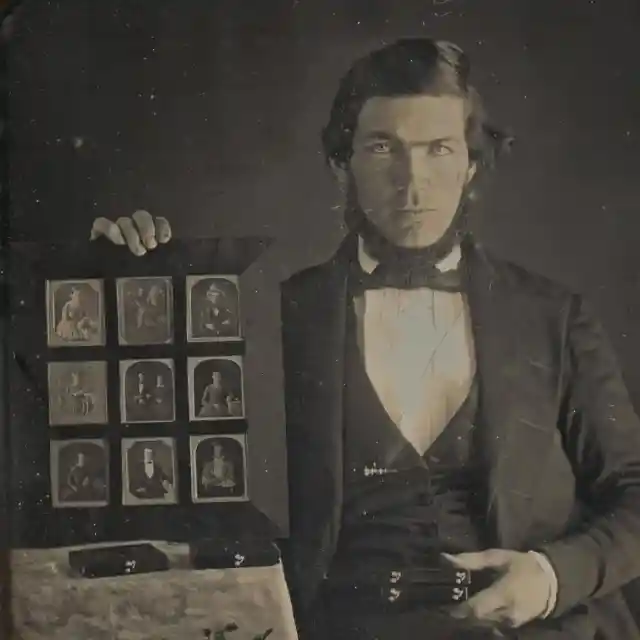
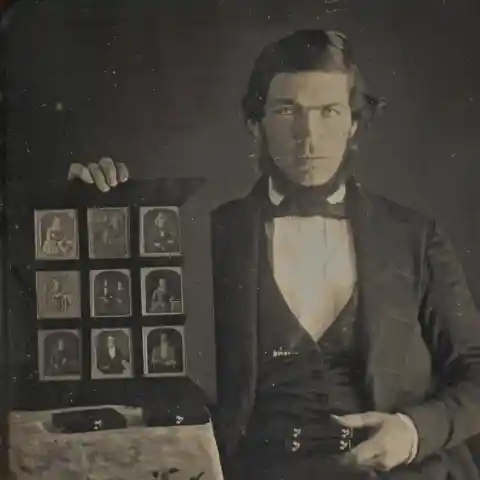
Haberdasher
The term "haberdashery" refers to sewing-related things, and the person in charge of running haberdashery shops was referred to as a "haberdasher." They were the skilled people in charge of sewing fashionable clothes for men and women. Women used to visit haberdashery establishments in earlier times, specifically the 19th century, to purchase apparel.
The first and most well-known haberdashery shop back then was Brook Brothers. Haberdashers are no longer necessary due to the development of the craft industries and the availability of these items in craft stores. Nonetheless, the fact that they were indeed the beautiful craftsmen of the old times can’t be ignored.
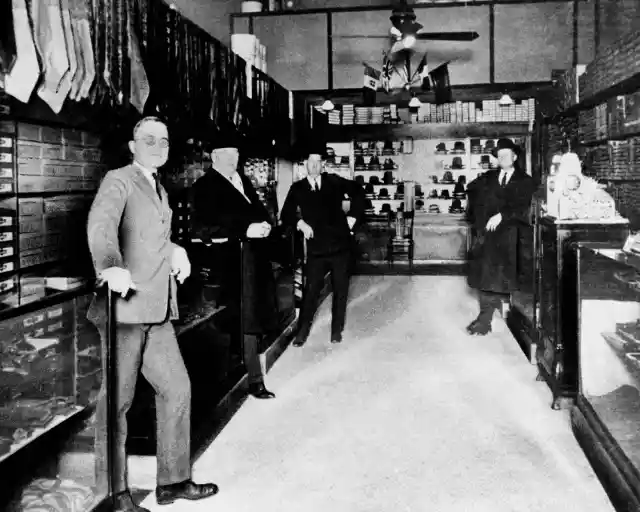
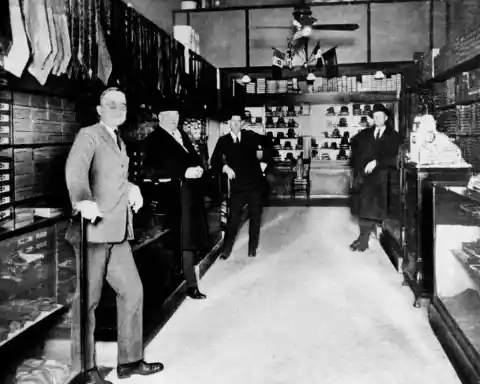
Redsmith
In the 1700s, the role of a redsmith was first described. Red Smith produced a vast array of products using gleaming red coppers back in the 18th century. The color of the raw copper served as the inspiration for the moniker "Redsmith."
Copper was in high demand in the past due to its health benefits. It is still demanded by many despite the high prices. Therefore, the work of the redsmith survived to date. Redsmiths still exist today, although they go by the name Metalsmith. They do some of the same duties as the original Red Smiths did and keep the tradition alive.
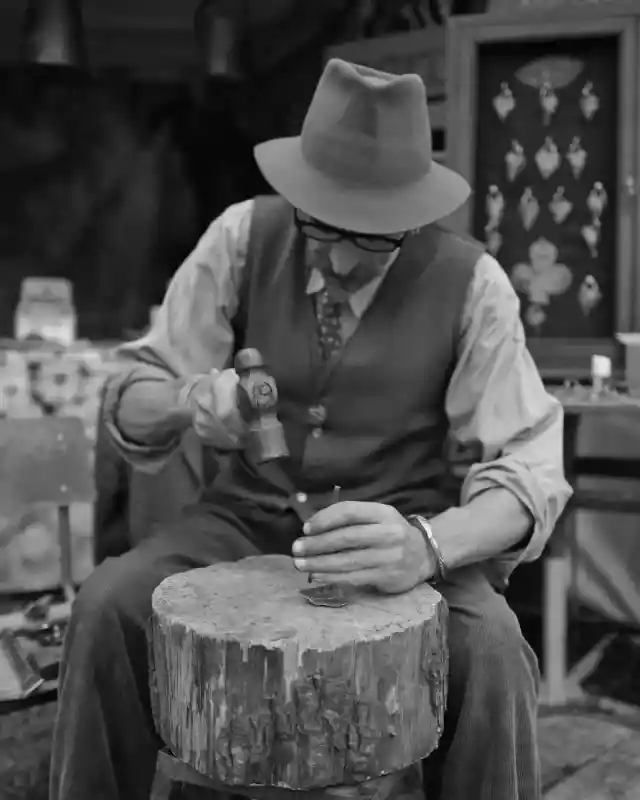
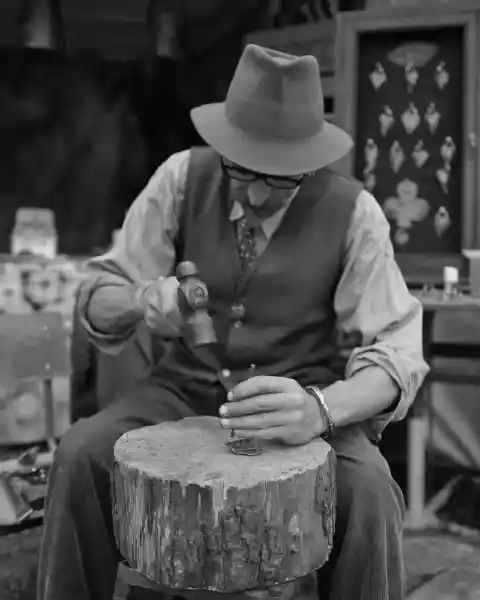
Fullers
Mass laundry used to exist much before the invention of washing machines. What do you suppose people in the past used to wash their garments as they didn't have access to washing machines? They used "Fullers.” The fullers were the people who used to do this strange job and were in charge of doing mass laundry.
Factory employees were the primary clientele that those in this line of employment interacted. As a result, Fullers were responsible for cleaning all manner of industrial stains from their clothing. Today, the job of fullers exists but they are no longer known by that name.
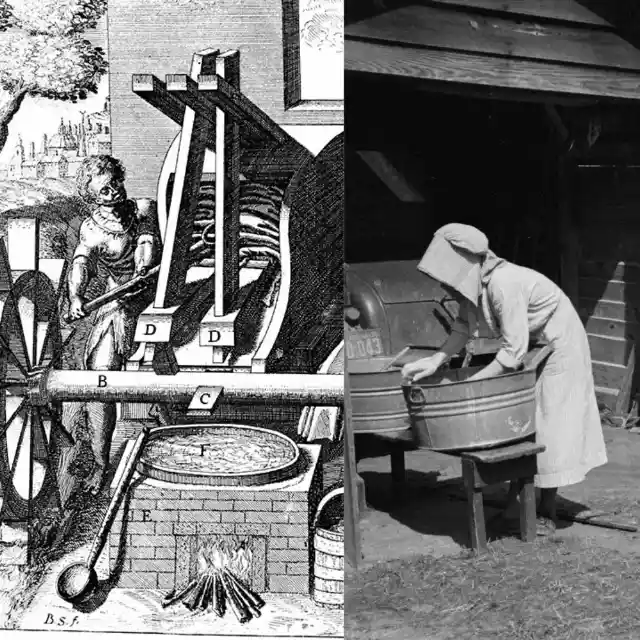
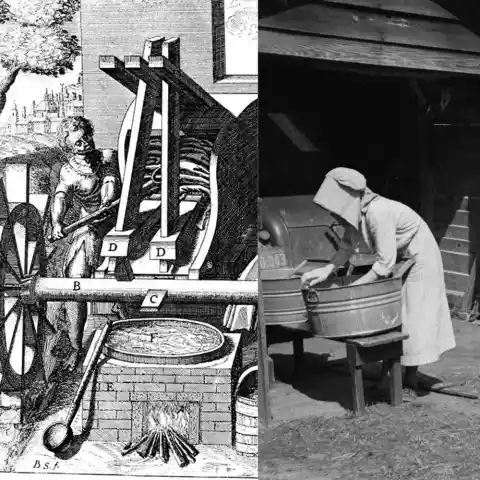
Book Peddler
Some book dealers used to go from door to door in the 19th century to sell books instead of setting up a permanent location. They would bring samples of their books and try to convince people on buying them. They didn’t have a permanent stall to lay their books down.
A few businesses are still using the door-to-door approach in the twenty-first century, but for obvious reasons, people do not view cold calls as favorably as they did in the past. The door-to-door approach to selling the products is not a wise marketing strategy for today’s time. Therefore, the profession no longer exists popularly.
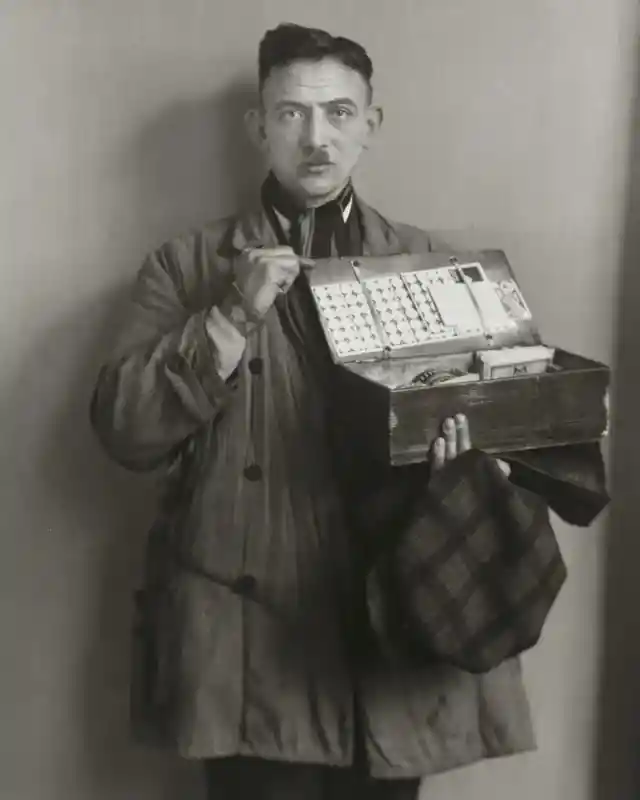
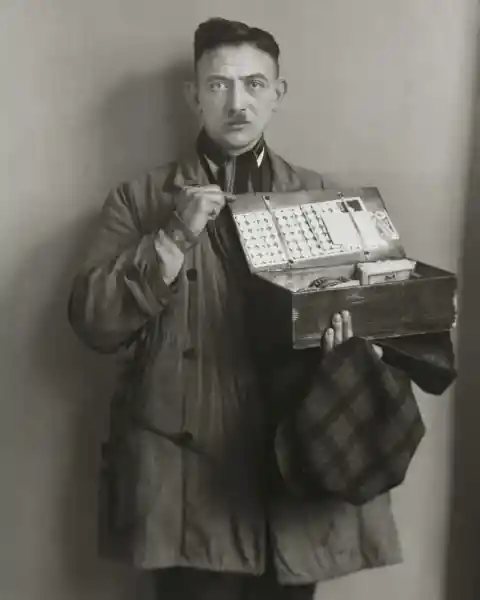
Town Crier
Even if the headline appears like a cry for help, there was this other thing that seems a little too bizarre to reflect on in the age of technology. You must’ve seen in the Disney movies or any movies best in ancient times, the people used to declare the announcements by kings with a loudspeaker in front of the whole crowd. It must’ve been a fun job. We could just wish to get paid for a job like this.
Town criers essentially organized a Disney movie-style rally around the town with their announcements. They spoke in a bold and loud manner. We are only one post or text away from announcing now that the internet has taken over.
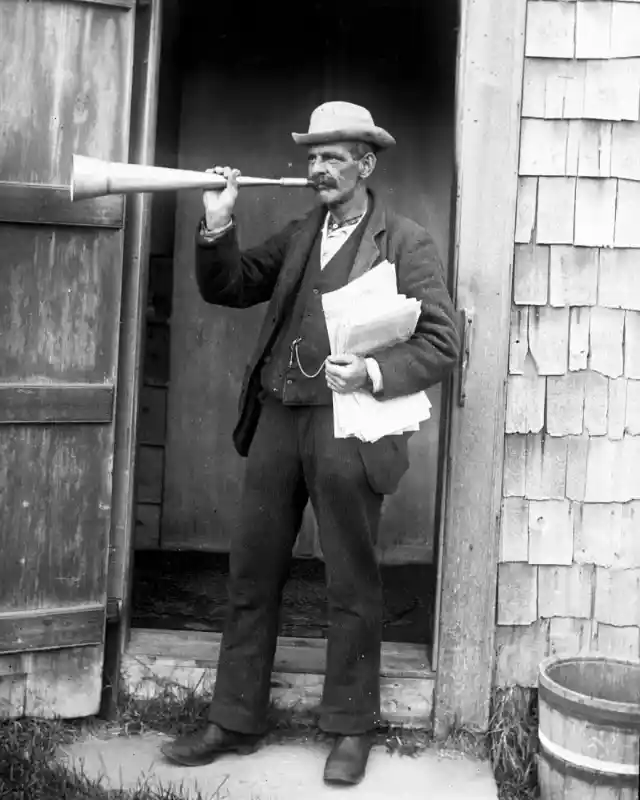
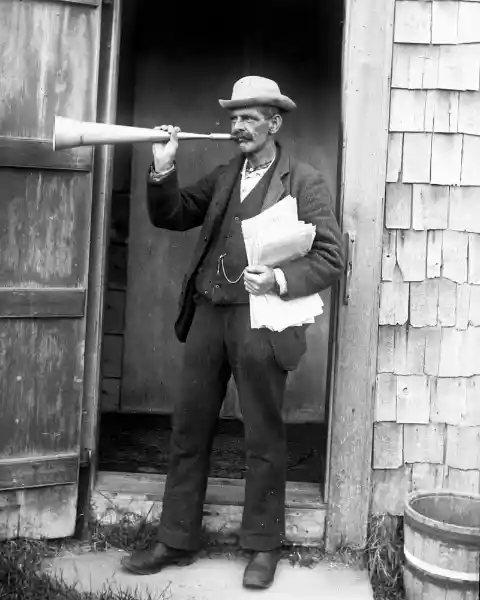
Signalman
Here is a position that is still in demand in some areas and that many of us may have accidentally discovered as well. Signalmen used to keep an eye on the tracks that the trains were traveling on. They also manually controlled the signal lights.
Additionally, the signalman had to confirm that the train was operating safely and had arrived on schedule. The modern transportation infrastructure has taken over this role. However, you could see people taking care of these activities in some small stations today as well.
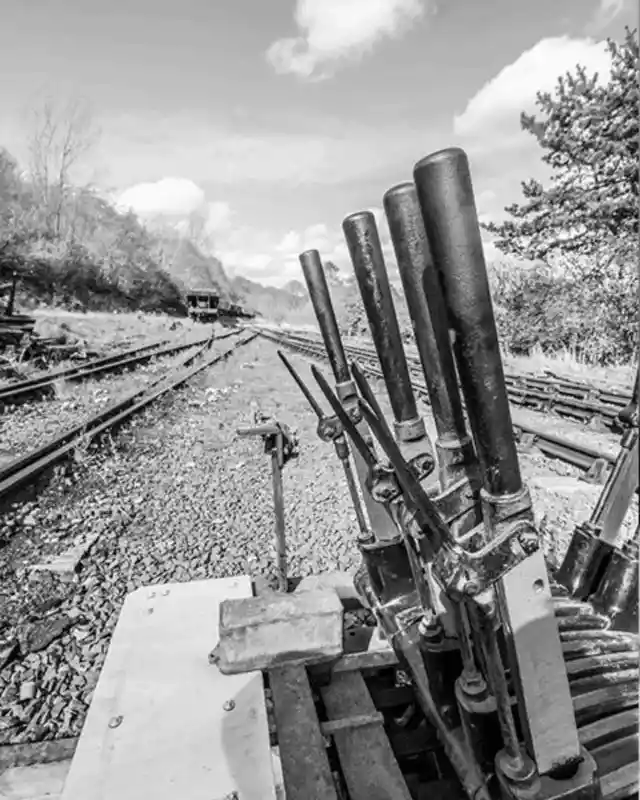
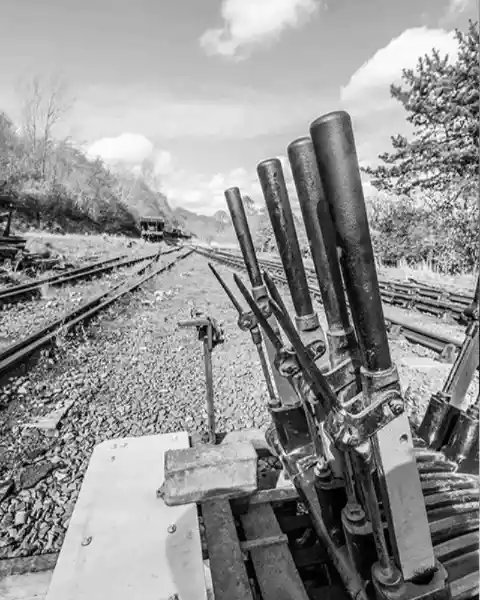
Quarryman
Contrary to popular belief, this employment had nothing to do with the British rock band known as "The Beatles." The manufacturing sector and urbanization experienced a tremendous change in economic growth in the 19th century. At this time, the working class suffered the most.
At the peak of economic suffering, quarrymen gained control and toiled tirelessly in the building sites to mine stones for a variety of uses. It was not an easy task and required a lot of work. They had to work tirelessly in adverse conditions to mine out essential minerals that helped with the regrowth of the economy.
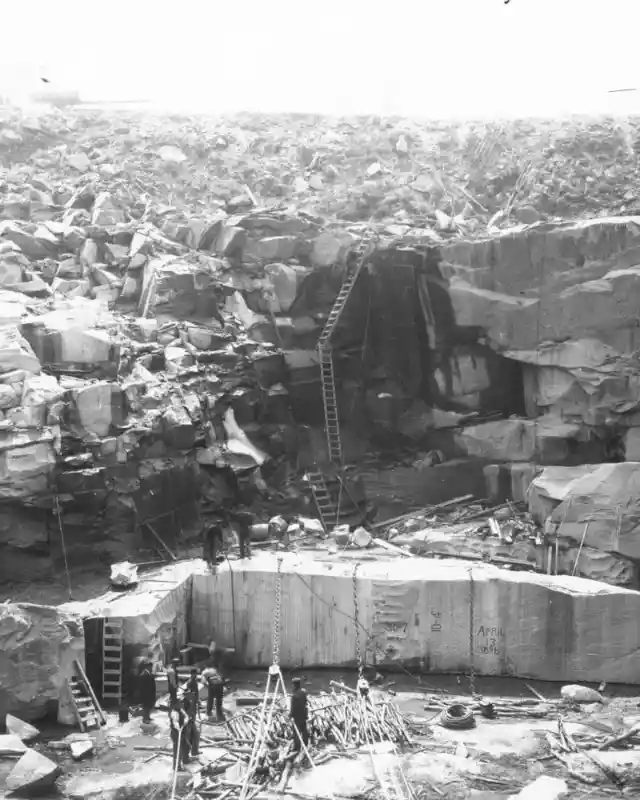
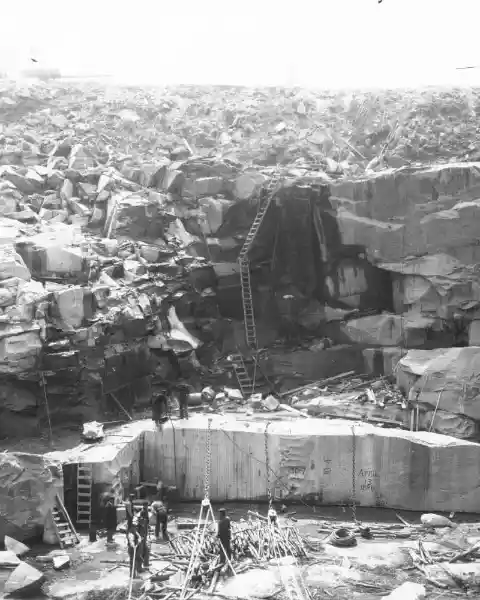
Film Boxer
The most valued items in the production houses during the 1990s were movies. Film boxers were employed by video entertainment firms, and a large portion of their duties was caring after the business's film canisters.
The film boxers used to keep all of the film canisters and send them as directed to various locations. This career has long since disappeared thanks to advancements in technology and the availability of numerous cutting-edge cameras on the market.
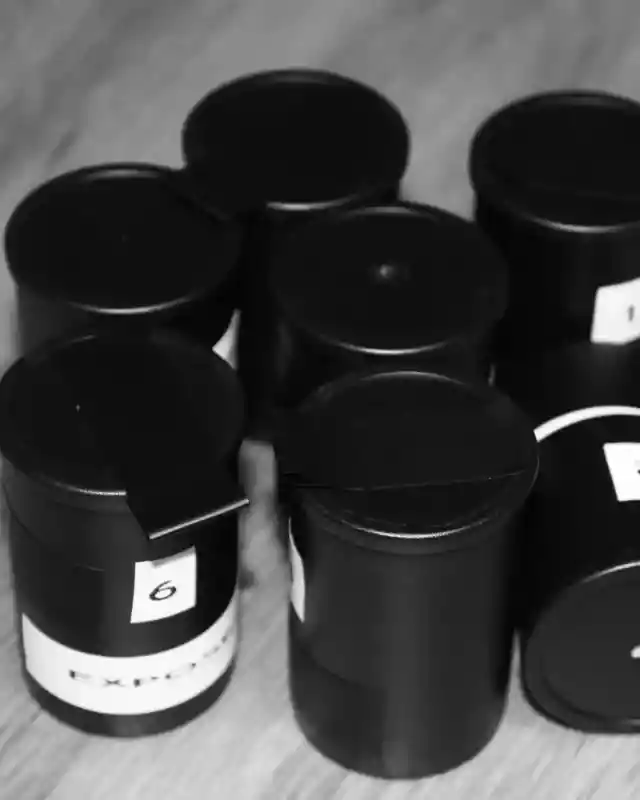
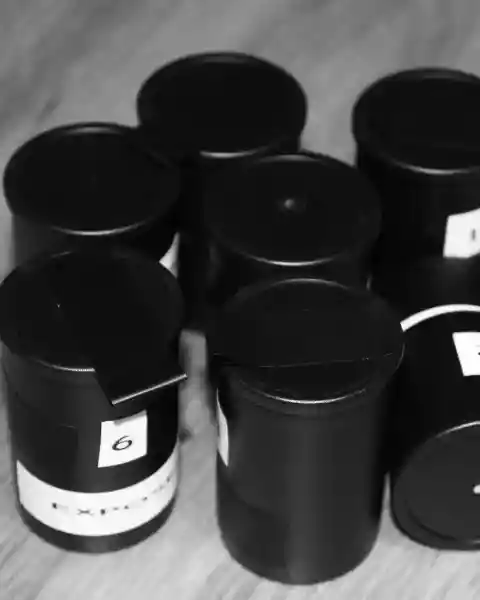
Leech Collectors
Anybody you ask will tell you that their primary concern when swimming in an uncharted river is the possibility of encountering leeches below. However, individuals in the 19th century did not hold this opinion, as using professional "medical leeches" to treat various diseases was actually extremely common at the time. Leech Collectors were responsible for collecting leeches from the lakes for medical purposes.
In that century, people believed that leeches had the supernatural power to draw all types of diseases with their blood. However, it was leading to severe infections. Nonetheless, after infections became more prevalent, this practice was abandoned.
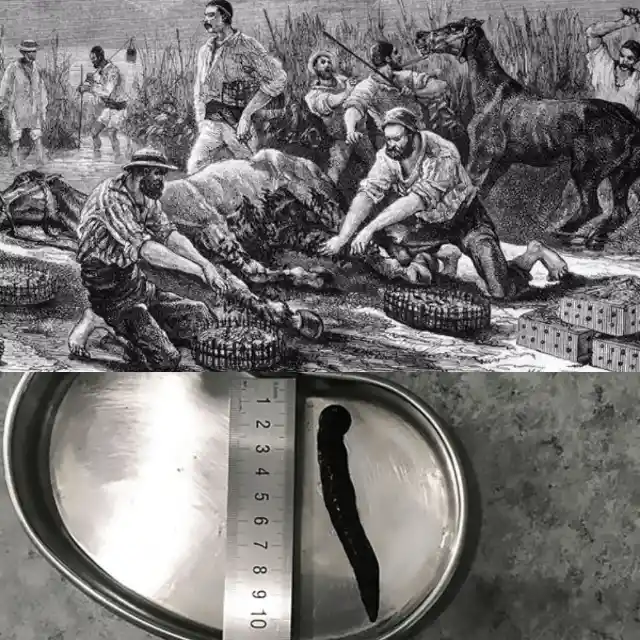
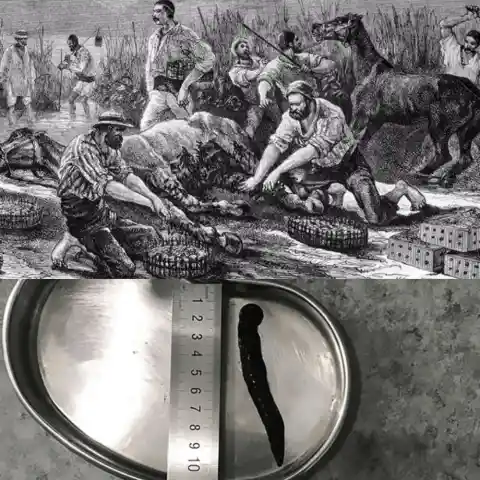
Herb Strewer
When regulated sewage systems were still a pipe dream in the 17th century, a sizable volume of human excrement from London ended up in the Thames. That combined with London's inherent unkemptness rendered the city odiferous to be in. it was not a pleasant smell.
However, thank the Herb Strewers! They would diffuse herb and flower aromas throughout the royal family's home to combat offensive scents. They would dress up and carry herb baskets as they attended royal occasions while wearing expensive attire.
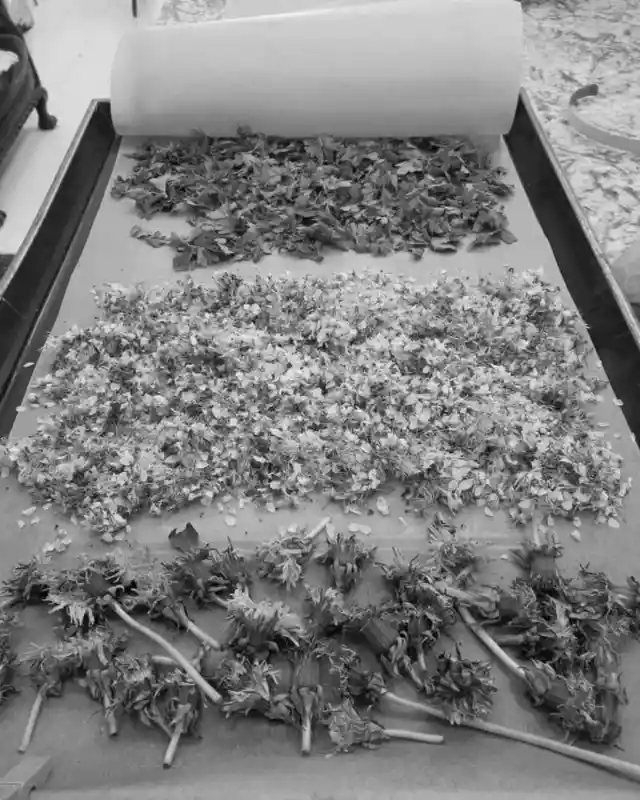
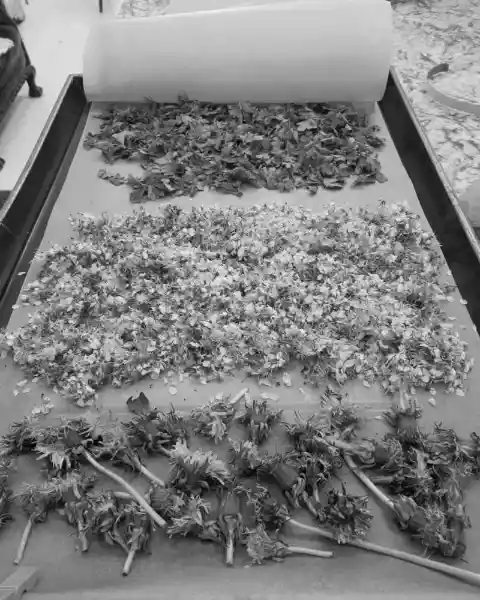
Radio Actors
In the 1920s, radio drama was a popular type of entertainment. The audience had little choice but to rely on the music, monologues, and drama that were transmitted on the radio for entertainment because there were so few other options available to them.
Although the emergence of television and the internet has put a stop to this profession of radio acting, radio actors are still performing passionate performances in various parts of the world. Radio actors are indeed passionate people who are also extremely talented.
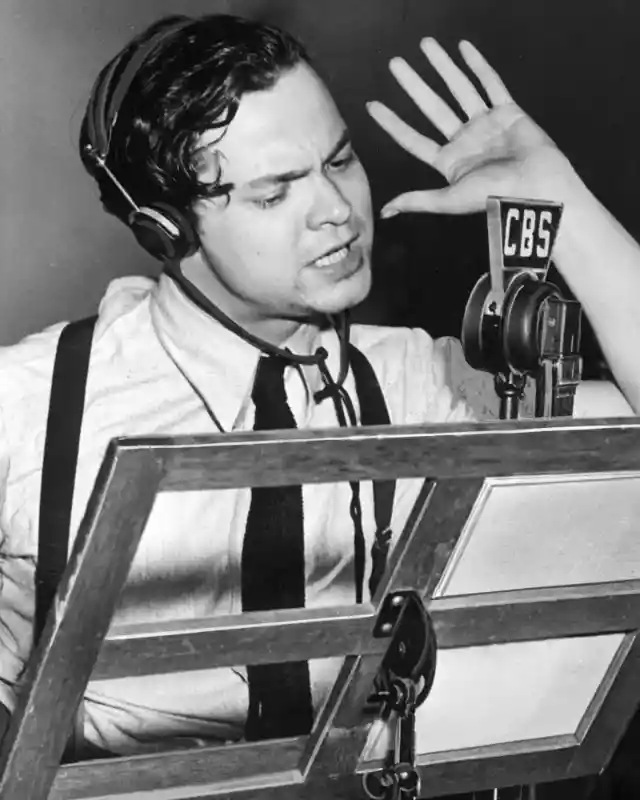
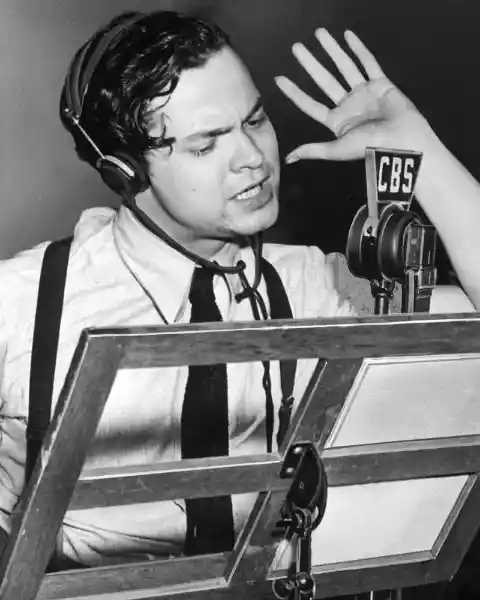
Pre-Radar Listener for Enemies
Saying that there was a time when armies couldn't rely on the radar in order to prepare for battle is nothing new. Instead, there was a time when forces had to develop alternative methods for spotting nearby hostile aircraft. It was the best that they could do in order to spot the enemies. Nonetheless, the job demanded a lot of dedication and a fine sense of hearing.
Prior to the invention of radar, listening devices and acoustic mirrors were employed to identify the sounds of enemy aircraft. They could track the engines' sounds specifically. Now with the invention of high-end technologies, the need for pre-radar listeners for enemies has got extinct.
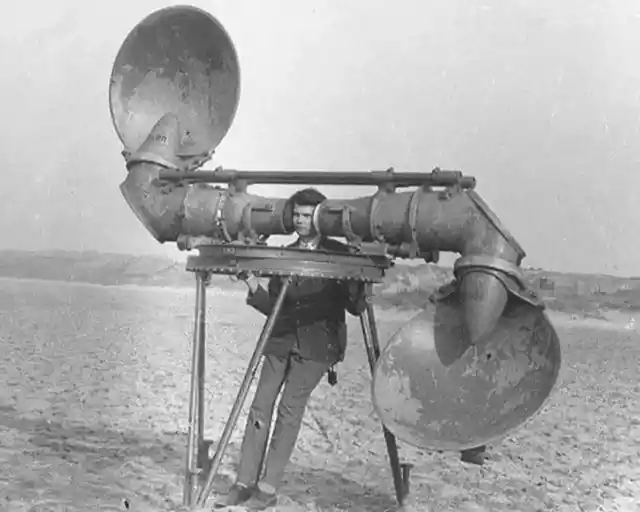
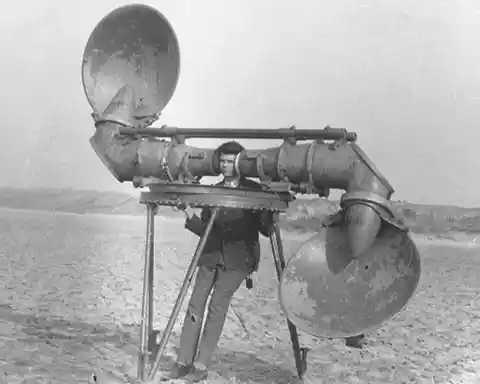
Dispatch Rider
In terms of our ability to transfer information from one location to another, we have come a long way. These days, all it takes is a button click. But in the early 1900s, things weren't always straightforward. Using dispatch riders was one method for transferring information over large distances. You must’ve seen the riders in the popular TV show named Game of Thrones take the king's message from one place to another on their horses.
Between the two World Wars, motorbikes were utilized to transport these messengers. Dispatch riders were regarded as being more dependable at the time because of the unreliability of radio broadcasts. With the improvement in technology, the profession of dispatch riders got extinct.
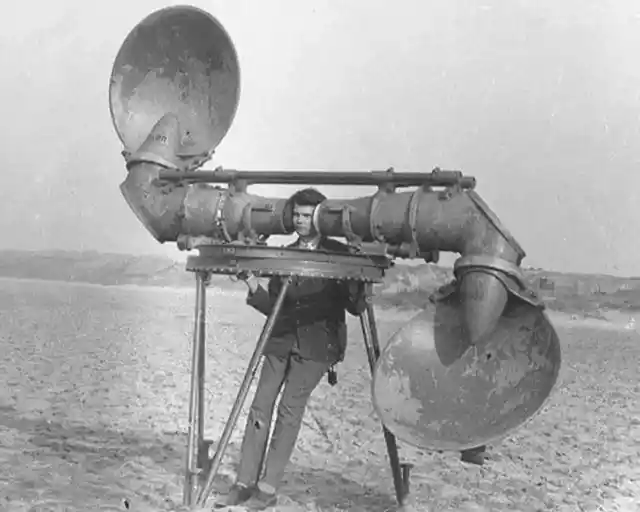
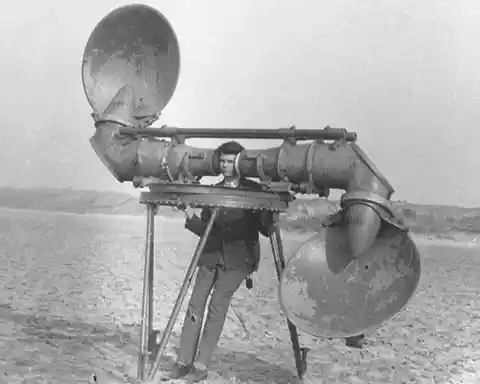
Telegraphist
During the telegraph's heyday, actually operating one during a war was a job that was both necessary and, as a result, rather well rewarded. Whether serving on land or at sea, soldiers benefited greatly from the information they received from telegraphists.
Morse code had mostly lost its usefulness, and the telegraph had shown to be a rapid means of communication. The telegraph was also a significant step toward the modern communications industry. However, with the advent of modern technologies, the use of the telegraph declined.
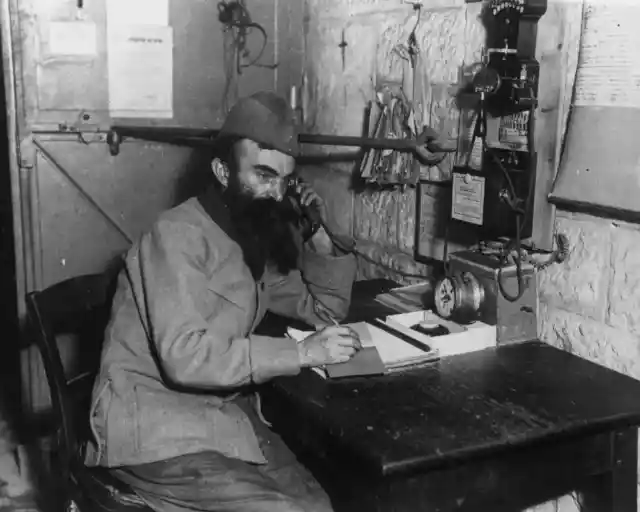
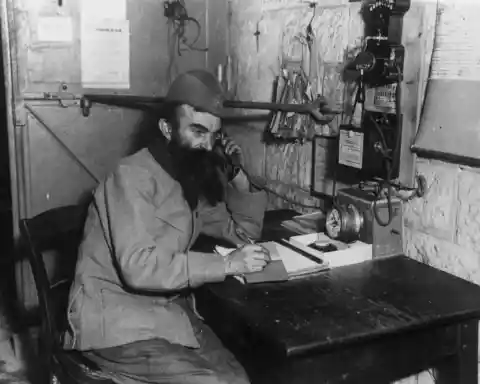
Toad Doctor
Without a doubt, this is one of the most absurd jobs on this list, and it is easy to see why it is no longer a thing. Toad physicians were extremely popular in the 19th century, particularly in the west of England. "Toad medicine" was constructed on the principles of folk magic.
At the time, scrofula was a major problem in this region of the world. Practitioners thought that applying a toad to the patient's neck while it was enclosed in a muslin bag would cure them. No matter how weird it would sound now, it was a thing in the past. We just can be thankful that the profession no longer exists.
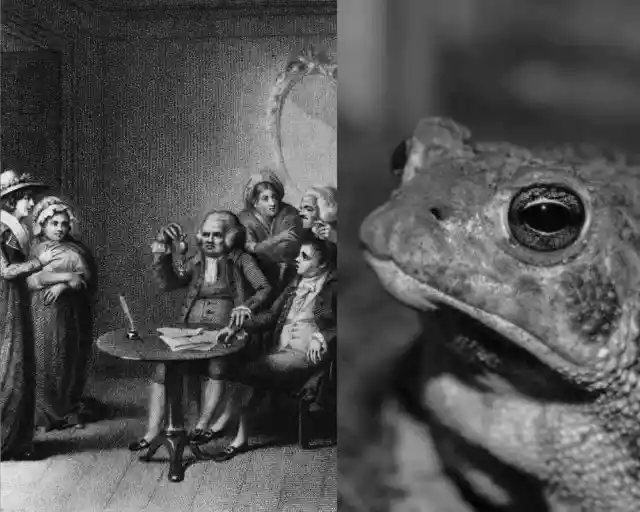
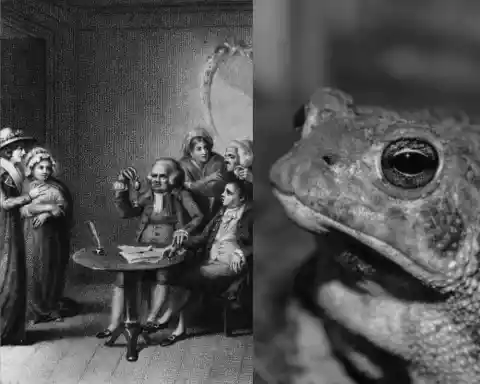
Water Carrier
Fair enough, water carriers are still in use today. However, they are no longer seen as jobs in the same way as persons who merely transport water. For centuries, carrying buckets of water on their backs was a viable source of income.
But when plumbing became more widespread, it started to become less and less relevant. In an interview with the BBC in 2015, an Indian water carrier recounted that, not more than 30 years ago, many people made their life by transporting water. However, today in the dry regions of Rajasthan, a state in India, women still have to travel long distances in order to carry water for the day-to-day basic activities.
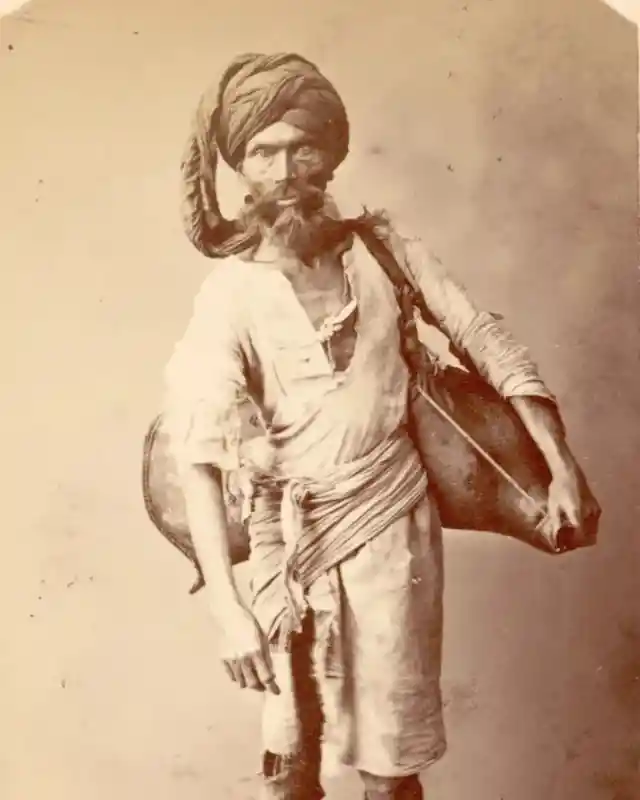
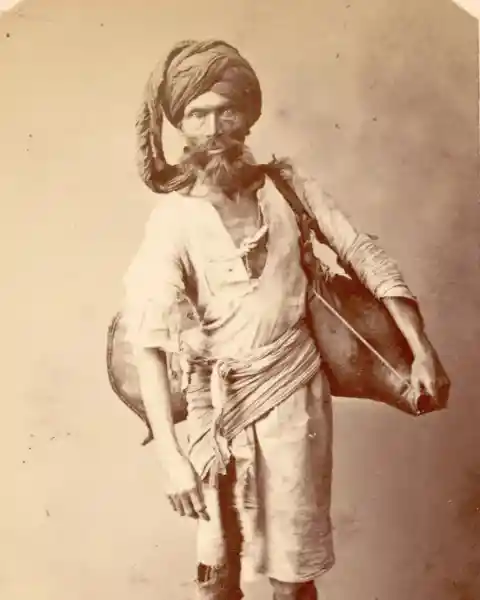
Breaker Boy
It appears that younger people began to work earlier in history the further back you look. Boys between the ages of 8 and 12 frequently worked as "breaker boys" in the 1920s in America. Despite frequently violating underage labor regulations, they would help coal breakers. This was how they got their name. The job was not only tough but also injurious for the boy’s health.
Nonetheless, as time went on, the regulations became much tougher, and children were far less frequently seen in these settings. Additionally, the technology used to separate coal spread widely. Now the profession is no longer in existence.
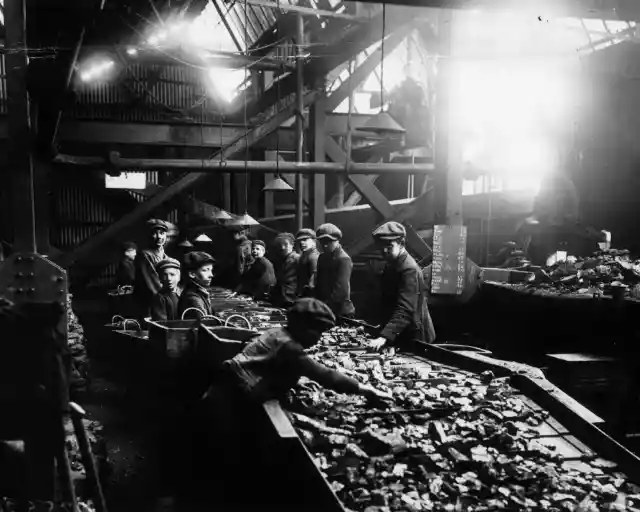
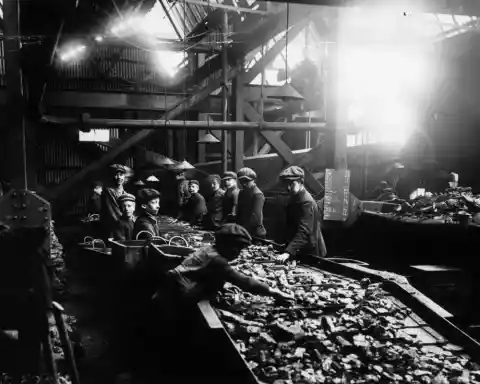
Plague Doctor
Although some might argue that the world could use some plague physicians coming back to the fold, this is undoubtedly one of the most iconic-looking professions that are no longer in existence. The job was a boom to societies that were very frequently hit with plague and similar diseases. Some people would dress up in these scary outfits in the 1600s.
However, the plague doctors were wholly useful. A variety of spices in the beaked mask let the doctor breathe cleaner air. To heal patients without actually touching them, these practitioners would always have a wand with them.
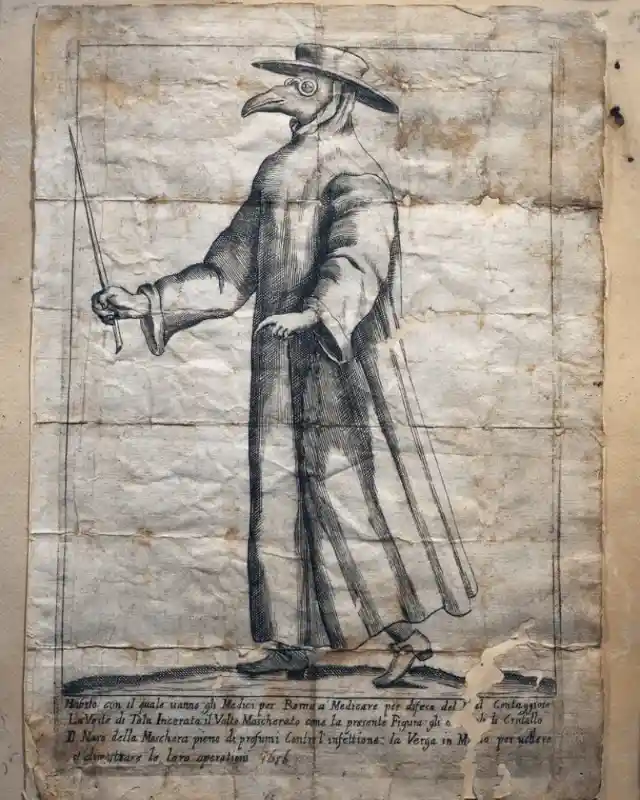
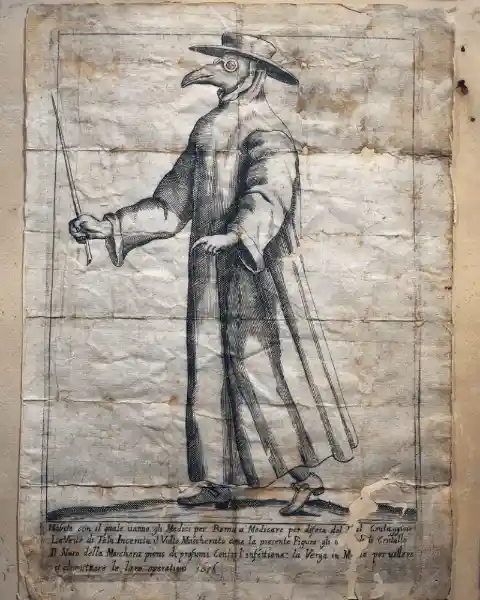
Barber Surgeon
Given that both jobs still exist, the old job is sort of cheating. However, there was a time when certain employees had dual specializations in risky patient procedures as well as the art of hair cutting. Many barbers served as surgeons back in the Middle Ages. Nonetheless, today we won’t allow any barber to operate on us for sure.
When not amputating limbs, the Barber Surgeon would be cutting troops' hair while they were on the battlefield. Nowadays, employees are almost never both, either one or the other. One profession requires a lot of training while the other one requires a lot of knowledge of human anatomy along with a lot of training.
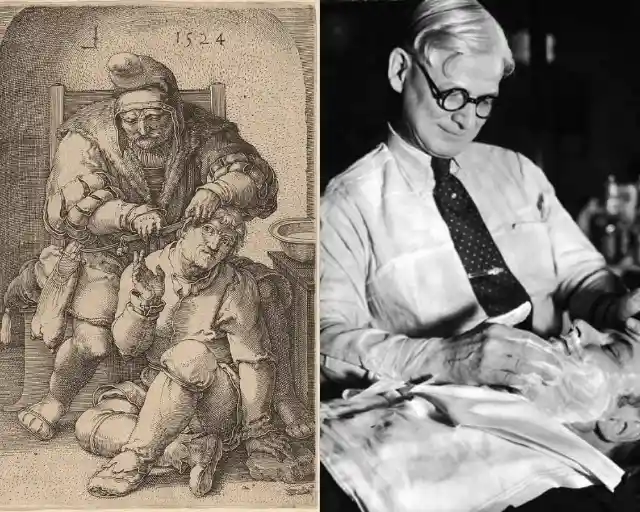
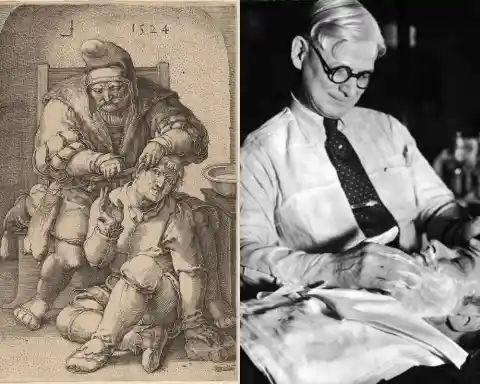
Soup Tester
It sounds like a scene from a vintage film. However, there was a time when individuals were paid to ensure that particular individuals weren't ingesting hazardous soup. Almost every royal family and someone of some importance would pay a person to taste-test their soup, and other delicacies as well.
Margot Woelk, for instance, had the difficult responsibility of evaluating the food and soup for German authorities during World War II. The profession was the outcome of the suspicious activities of the enemies who often used to poison the soup of important people in order to take over their properties or positions.
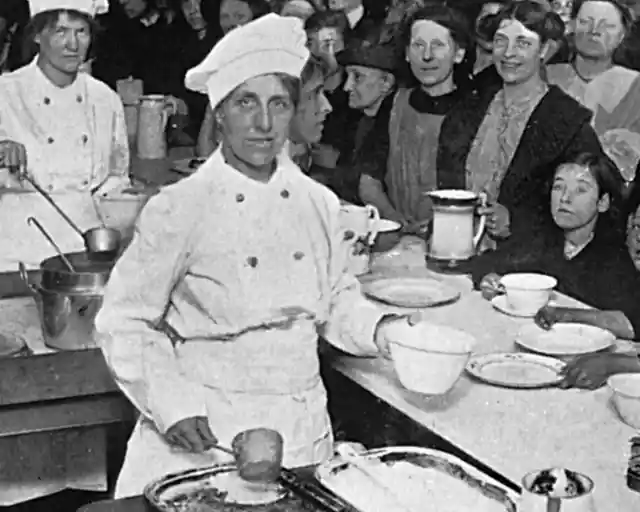
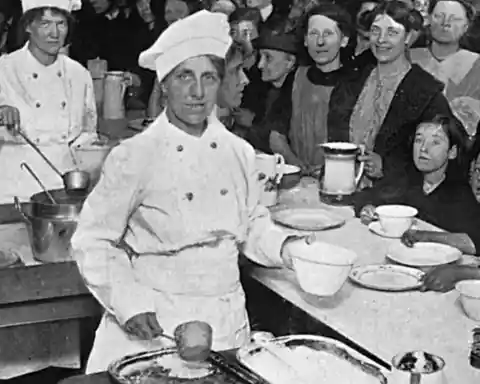
Dictaphone Operator
Today, there are countless options for how we might set up our shopping lists. We don't even have to think about it when we can tell voice-activated software on a smartphone what we want to buy. However, there was a time when that wasn't possible.
Dictaphone operators helped create dictation machines in the late 1800s and early 1900s, and voice recorders eventually followed, giving rise to the technology we use today. It is just astonishing to see how the technologies that we use today are developed by the minor inventions of the past.
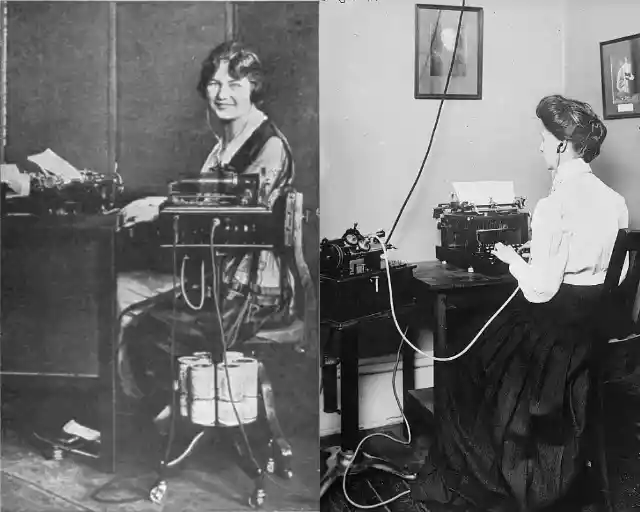
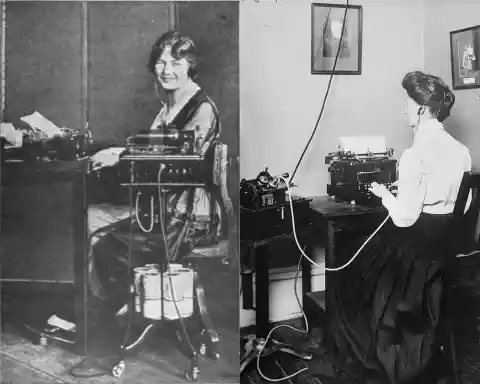
Hush Shopkeepers
Imagine not being able to unwind after a long, arduous day with a glass of your favorite beverage. In contrast to the 21st century, people back then relied on specific "hush shopkeepers" who dealt with illegal substances in secret.
The fundamental responsibility of these store owners was to avoid legal trouble while selling their wares and to maintain the loyalty of their devoted clientele. Due to the huge demand for their services, hush-shop owners received hefty wages.
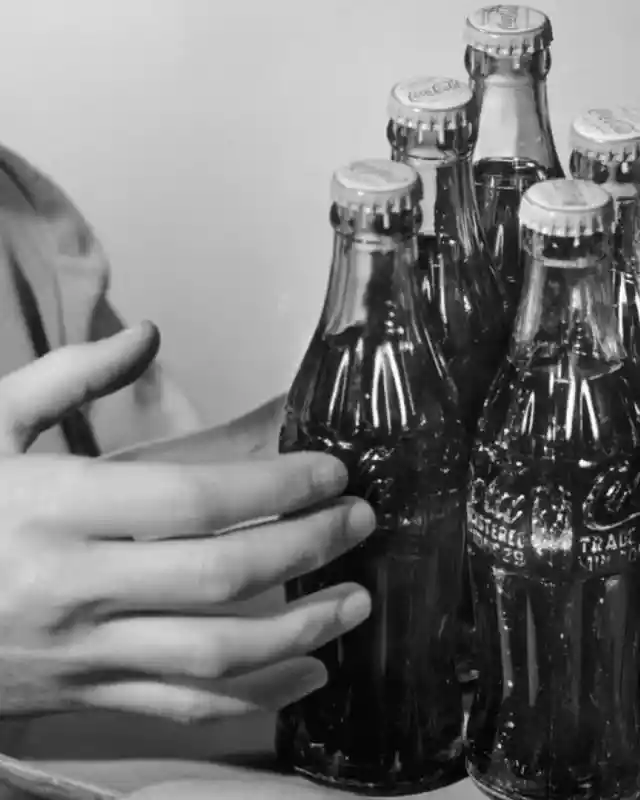
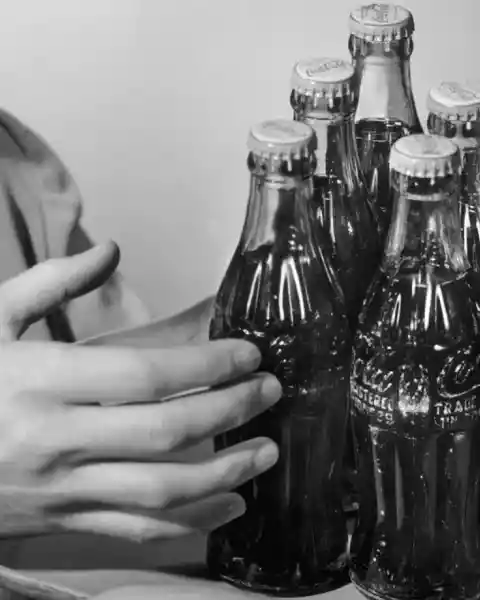
Necessary Women
Prior to the colonial era, the job of Necessary Women was extremely common. As the name implies, women were typically given this task. They were in high demand for the position as well. The actual job was to empty a lot of waste-filled chamber pots.
Women had to perform these manual activities all day long. These duties were nearly immediately superseded when the colonial era began with the invention of indoor baths. People began using the bathroom flush instead, which is what caused the job to get extinct.
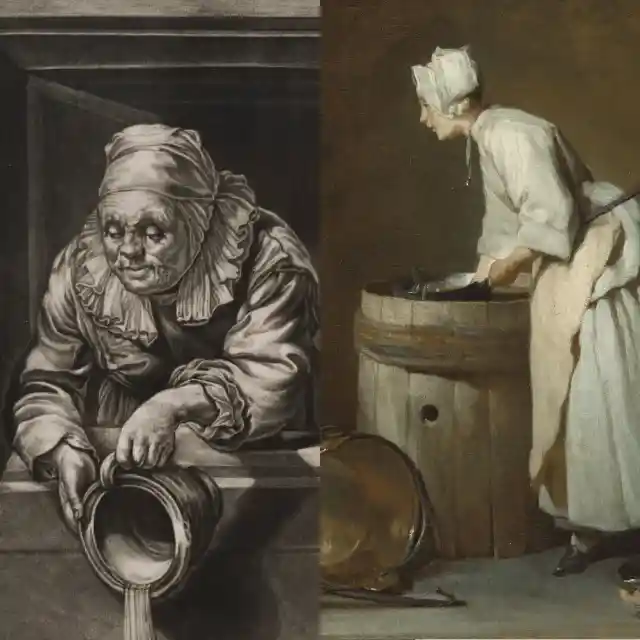
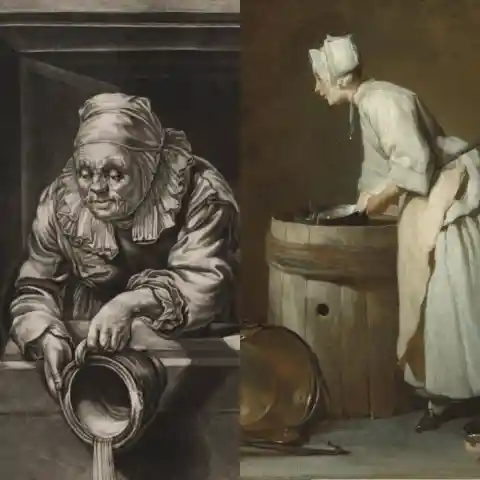
Catchpoles
Although we are confident that no one likes modern debt collectors, it appears that they used to be known as "Catchpoles" in past times. Catchpoles were individuals who used to roam the British colonies collecting enormous sums of tax and financial obligations.
Even then, the labor of the catchpole was difficult and was met with the disdain of common people. Though the catchpole's job description may have remained the same over the years, we are delighted that it did end. The ending of the profession must’ve brought relief to many faces.

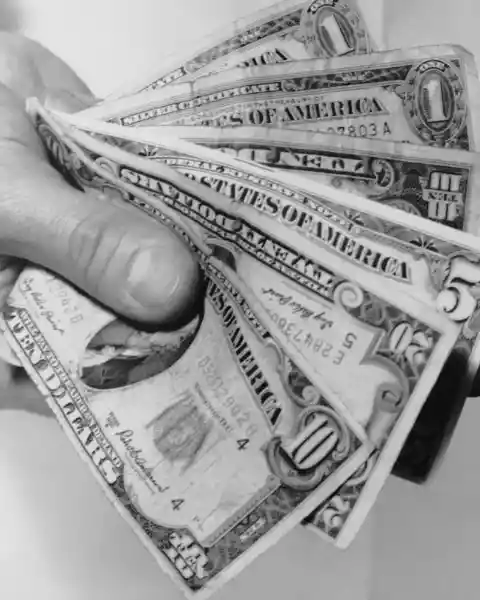
Groom of the Stool
Do you believe your employer is not good? Be cautious! What career in the Tudor era offered good pay but was also completely humiliating? That would be the groom of the stool. The Groom of the stool would have to undress the king and wait till the monarch was done with his bathroom duties. Sounds disgusting? There’s more that would blow up your mind.
Then, the groom of the stool would have to use cotton and water to clean the king's behind. Sometimes they had to remove the feces so that doctors could examine them to make sure the monarch was healthy. We are glad that this kind of job doesn’t exist in today’s time.


Soda Jerk
Many young people in the 20th century were interested in working as soda jerks. Serving customers' ordered ice cream and beverages as well as managing soda spigots were all part of this employment. The job was similar to waitressing in modern times.
Although the job of soda jerks was similar to waitressing, their dress code was a little odd and close to the Playboys. They were compelled to serve in paper hats and bow ties for this post. The fast food chains' rivalry, however, made it difficult for these experts to stay in business, and many finally went out of business. We are glad that people, no longer, have to wear the odd dress code before serving ice cream and beverages to the customers.
